Security Alert May 17, 2024
Worldwide caution, update may 10, 2024, information for u.s. citizens in the middle east.
- Travel Advisories |
- Contact Us |
- MyTravelGov |

Find U.S. Embassies & Consulates
Travel.state.gov, congressional liaison, special issuance agency, u.s. passports, international travel, intercountry adoption, international parental child abduction, records and authentications, popular links, travel advisories, mytravelgov, stay connected, legal resources, legal information, info for u.s. law enforcement, replace or certify documents.
Before You Go
Learn About Your Destination
While Abroad
Emergencies
Share this page:
Travel Advisory July 26, 2023
Italy - level 2: exercise increased caution.
Reissued with obsolete COVID-19 page links removed.
Exercise increased caution due to terrorism .
Country Summary: Terrorist groups continue plotting possible attacks in Italy. Terrorists may attack with little or no warning, targeting tourist locations, transportation hubs, markets/shopping malls, local government facilities, hotels, clubs, restaurants, places of worship, parks, major sporting and cultural events, educational institutions, airports, and other public areas.
Read the country information page for additional information on travel to Italy.
If you decide to travel to Italy:
- Be aware of your surroundings when traveling to tourist locations and crowded public venues.
- Follow the instructions of local authorities.
- Monitor local media for breaking events and adjust your plans based on new information.
- Enroll in the Smart Traveler Enrollment Program ( STEP ) to receive Alerts and make it easier to locate you in an emergency.
- Follow the Department of State on Facebook and Twitter .
- Review the Country Security Report for Italy.
- Visit the CDC page for the latest Travel Health Information related to your travel.
- Prepare a contingency plan for emergency situations. Review the Traveler’s Checklist.
Embassy Messages
View Alerts and Messages Archive
Quick Facts
Six months validity recommended, at least 3 months validity beyond your planned date of departure from the Schengen area .
Two pages required for entry stamp.
Not required for stays under 90 days.
10,000 Euros or equivalent.
Embassies and Consulates
U.S. Embassy Rome
Via Vittorio Veneto, 121 00187 Rome, Italy Telephone: +(39) 06-4674-1 Emergency After-Hours Telephone: +(39) 06-4674-1 Fax: +(39) 06-4674-2244 Email: [email protected] The Rome consular district includes the regions of Lazio, Marche, Umbria, Abruzzo, and Sardinia.
U.S. Mission to the UN Agencies in Rome Via Boncompagni, 2 Telephone: (+39) 06-4674-1 Emergency after-hours telephone: (+39) 06-4674-1 Fax: (+39) 06 4674-3535 Email: [email protected]
U.S. Embassy to the Holy See Via Sallustiana, 49 00162 Rome, Italy Telephone: +(39) 06-4674-3428 Emergency After-Hours Telephone: +(39) 06-4674-1 Fax: +(39) 06-575-8346
U.S. Consulate General Florence Lungarno Amerigo Vespucci, 38 50123 Florence, Italy Telephone: +(39) 055-266-951 Emergency After-Hours Telephone: +(39) 055-266-951 Fax: +(39) 055-215-550 Email: [email protected] The Florence consular district includes the regions of Tuscany and Emilia-Romagna (all except the Provinces of Piacenza and Parma), as well as the Republic of San Marino.
U.S. Consulate General Milan Via Principe Amedeo 2/10 20121 Milano, Italy Telephone: +(39) 02-290-351 Emergency After-Hours Telephone: +(39) 02-290-351 Fax: +(39) 081-583-8275 Email: [email protected] The Milan consular district includes the regions of Valle D'Aosta, Piemonte, Lombardia, Veneto, Trentino-Alto Adige, Friuli-Venezia Giulia, Liguria, and Emilia-Romagna (Provinces of Piacenza and Parma only).
U.S. Consulate General Naples Piazza della Repubblica 80122 Naples, Italy Telephone: +(39) 081-583-8111 Emergency After-Hours Telephone: +(39) 081-583-8111 Fax: +(39) 081-583-8275 Email: [email protected] The Naples consular district includes the regions of Campania, Molise, Basilicata, Puglia, Calabria, and Sicilia.
U.S. Consular Agent - Genoa Via Dante 2 16121 Genoa, Italy Telephone: +(39) 010-584-492 Emergency After-Hours Telephone: Please contact the U.S. Consulate General in Milan. Fax: +(39) 010-553-3033 Email: [email protected] Hours: Monday through Thursday 11:00 AM-3:00 PM, by appointment only.
U.S. Consular Agent - Palermo Via G.B. Vaccarini 1 90143 Palermo, Italy Telephone: +(39) 091-305-857 Emergency After-Hours Telephone: Please contact the U.S. Consulate General in Naples Fax: +(39) 091-625-6026 Email: [email protected] Hours: Monday through Friday 9:00 AM-12:30 PM by appointment only.
U.S. Consular Agent - Venice Viale Galileo Galilei 30 30173 Tessera, Italy Telephone: +(39) 041-541-5944 Emergency After-Hours Telephone: Please contact the U.S. Consulate General in Milan. Fax: +(39) 041-541-6654 Email: [email protected] Hours: Monday through Thursday, 10:00 AM-4:00 PM, by appointment only.
Destination Description
Learn about the U.S. relationship to countries around the world.
Entry, Exit and Visa Requirements
There are no COVID-related entry requirements for U.S. citizens.
Traveling Through Europe: If you are planning to visit or travel through European countries, you should be familiar with the requirements of the Schengen Agreement.
- Your passport must be valid for at least three months beyond the period of stay. Review our U.S. Travelers in Europe page .
- You will need proof of s ufficient funds and a return plane ticket .
- For additional information about visas for the Schengen area, see the Schengen Visa page.
- U.S. citizens who arrive at an Italian Port of Entry without a valid travel document – including passports that have been previously reported lost or stolen – will be denied admittance into Italy and returned to their point of origin. This regulation is strictly enforced in Italy.
- U.S. citizens may enter Italy for up to 90 days for tourist or business purposes without a visa. All non-residents are required to complete a declaration of presence (dichiarazione di presenza). Prospective residents or anyone intending to stay in Italy for longer than 90 days must obtain a permit of stay (permesso di soggiorno). Additional information may be obtained from the Ministry of Foreign Affairs and the Polizia di Stato .
- Non-EU visitors must obtain a stamp in their passport upon initial entry into a Schengen country. Many borders are unstaffed, so you may need to request a stamp at an official point of entry. Travelers arriving from another Schengen country must request the declaration of presence form from a local police office (commissariato di zona), police headquarters (questura), or their place of stay (e.g., hotel, hostel, campgrounds), and submit the form, along with a copy of your passport, to the police or to their place of stay within eight calendar days of arrival. Failure to complete a declaration of presence is punishable by expulsion from Italy.
The U.S. Department of State is unaware of any HIV/AIDS entry restrictions for visitors to or foreign residents of Italy.
Find information on dual nationality , prevention of international child abduction , and customs regulations on our websites. For general information about Italian customs regulations, please read our Customs Information page and our Italian Customs website.
Safety and Security
Terrorism: Terrorist groups and those inspired by such organizations are intent on attacking U.S. citizens abroad. Terrorists are increasingly using less sophisticated methods of attack – including knives, firearms, improvised explosive devices (IEDs), and vehicles – to more effectively target crowds. Frequently, their aim is unprotected or vulnerable targets, such as:
- High-profile public events (sporting contests, political rallies, demonstrations, holiday events, celebratory gatherings, etc.)
- Hotels, clubs, and restaurants frequented by tourists
- Places of worship
- Shopping malls and markets
- Public transportation systems (including subways, buses, trains, and commercial flights)
For more information, see our Terrorism page.
Politically motivated violence in Italy is most often connected to Italian internal developments or social issues. Italian authorities and foreign diplomatic facilities have found bombs outside public buildings, have received bomb threats, and have been targets of letter bombs, firebombs and Molotov cocktails in the past several years. These attacks generally occur at night, and although they have not targeted or injured U.S. citizens, you should remain aware of your surroundings and report any suspicious activity to local authorities.
Crime: Italy has a moderate rate of crime, especially for theft and economic crimes; violent crimes are rare. U.S. citizens should be aware of the following local circumstances:
- Tourists can be fined or detained for buying counterfeit goods (usually fashion accessories).
- Travelers must purchase train, bus, or metro tickets and validate them by punching them in validating machines prior to boarding (usually near the entrance of the train or metro or on the bus). Tickets may be purchased at tobacco stores or kiosks or, in some cities, via Apps or SMS. Failure to follow this procedure may result in an on-the-spot fine by an inspector on the train, bus, or metro. If the violator does not pay the fine on the spot, it will automatically double and be forwarded to the violator’s home address.
- Be alert that many municipalities of cities in Italy have issued local restrictions banning certain activities in fountains or on monuments, such as eating, drinking, sitting, or bathing, as well as regarding the consumption of alcohol both indoors and outdoors after certain hours of the night.
- Violating these regulations can result in fines. Tourists are advised to check the official website of each city they plan to visit to learn the details.
- Thieves sometimes impersonate police officers. If you are stopped by a plainclothes policeman, ask for a uniformed officer or insist on seeing an officer's identification card (documento). Do not hand over your wallet and immediately report the incident to the actual police at a police station or by dialing 112 from a local phone.
- Do not leave bags unattended. Most reported thefts occur at crowded tourist sites, at airports, car rental agencies, on public buses, metros and trains, and at the major railway stations. Never leave baggage alone in a car, including in a closed trunk. For more information on trains and security, please see the Italian railway police’s advice for travelers .
- Be alert to criminal schemes. Organized groups of thieves and pickpockets operate at major tourist destinations, in train stations, bars, and cafes. Some travelers have reported incidents in which criminals used drugs to assault or rob them. Thieves on motor scooters regularly snatch purses or bags off pedestrians. Resisting these thieves can be dangerous.
- Keep your car doors locked and windows rolled up at all times to avoid car-jackings and thefts while you are waiting in traffic.
The U.S. Secret Service in Rome is assisting Italian law enforcement authorities in investigating an increase in the appearance of ATM skimming devices. Here are some helpful hints to protect against and identify skimming devices:
- Use ATMs located in well-lit public areas or secured inside a bank/business.
- Cover the keypad with one hand as you enter your PIN.
- Look for gaps, tampered appearance, or other irregularities between the metal faceplate of the ATM and the card reader.
- Avoid card readers that are not flush with the face of the ATM.
- Closely monitor your account statements for unauthorized transactions.
Potential for Natural Disasters: Several major earthquake fault lines cross Italy, and earthquakes are frequent. High tides in Venice, flooding, and avalanches in mountainous areas may occasionally occur. The Italian Civil Protection agency has a robust capability to assist Italians and foreigners in the area of a natural disaster. Information about crisis preparedness and on-going crises affecting parts of Italy can be found on the Civil Protection web site at: Civil Protection Italy . General information about disaster preparedness is also available online from the U.S. Federal Emergency Management Agency (FEMA). Detailed information on Italy's fault lines is available from the U.S. Geological Survey (USGS).
Italy also has several active volcanoes, including Mt. Etna in eastern Sicily. Travelers to Sicily should be aware of the possibility for travel disruptions, including airport closures, in the event of volcanic activity, and are advised to check the website of the Istituto Nazionale di Geofisica e Vulcanologia for detailed information and daily updates. Italy has many other areas of potential volcanic activity especially in the vicinity of Naples. Any visit to an active volcano or volcanic field bears a certain amount of risk. Eruptions can occur with little to no warning. Travelers should exercise caution, follow posted instructions, stay on authorized trails, and use reputable tour operators.
Demonstrations occur frequently and can be anti-American in nature, especially in areas hosting U.S. military bases. They may take place in response to political or economic issues, on politically significant holidays, and during international events.
- Even demonstrations intended to be peaceful can turn confrontational and possibly become violent.
- Avoid areas around protests and demonstrations.
- Check local media for updates and traffic advisories.
- Security Messages for U.S. citizens pertaining to demonstrations can be found on the Embassy’s website.
International Financial Scams: See the Department of State and the FBI pages for information.
Internet romance and financial scams are prevalent in Italy. Scams are often initiated through Internet postings/profiles or by unsolicited emails and letters. Scammers almost always pose as U.S. citizens who have no one else to turn to for help. Common scams include:
- Romance/Online dating
- Money transfers
- Lucrative sales
- Contracts with promises of large commissions
- Grandparent/Relative targeting
- Free Trip/Luggage
- Inheritance notices
- Work permits/job offers
Victims of Crime: U.S. citizen victims of sexual assault should seek medical attention at the nearest public hospital as soon as possible. U.S. citizen victims of sexual assault are also encouraged to contact the U.S. Embassy for assistance at +(39) 06-4674-1. Report crimes to the local police by dialing 112. Remember that local authorities are responsible for investigating and prosecuting crimes.
See our webpage on help for U.S. victims of crime overseas .
- Help you find appropriate medical care
- Assist you in reporting a crime to the police
- Contact relatives or friends with your written consent
- Explain the local criminal justice process in general terms
- Provide a list of local English-speaking attorneys
- Provide information on victim’s compensation programs in the United States
- Provide an emergency loan for repatriation to the United States and/or limited medical support in cases of destitution
- Help you find accommodation and arrange flights home
- Replace a stolen or lost passport
Victim Compensation in Italy :
- Italy has a program which provides financial compensation for victims of terrorism, organized crime, hit and run drivers and violent intentional crimes.
- If you are a victim of terrorism or organized crime in Italy, you are entitled to economic (special compensation and a life income) and non-economic benefits (special access to certain state jobs).
- In case of death, victims will include family members. You must file the application with the local Prefect’s office (Prefettura - the local representative for the Ministry of Interior) where the crime occurred, providing the date, location, injuries, and losses resulting from the crime.
- If you are a victim of a hit and run driver, you can apply for compensation of damages to the Fondo Di Garanzia per le Vittime della Strada but only if: (i) the responsible vehicle cannot be identified, is not covered by car insurance, or it circulated against the owner’s will; (ii) if the car insurance company went bankrupt; or (iii) if the accident was caused by a foreign vehicle with a license number that does not match or does not match anymore that same vehicle. U.S. citizens should consult an attorney licensed to practice in Italy to clarify time limits for a specific legal action.
Victims of hit and run drivers and their families may seek assistance by reaching out to an Italian non-governmental organization (NGO) called Associazione Italiana Familiari e Vittime della Strada (AIFVS), “Association of Italian Family Members and Victims of Hit and Run Drivers”. AIFVS provides legal and psychological assistance through a network of professionals associated with the NGO. Please visit AIFVS for more details.
If you are a victim of a violent intentional crime, you are entitled to compensation from the Italian government to cover the medical and welfare expenses you incurred, except for sexual assaults and murders cases where the compensation is due even if no medical and welfare expense was sustained. To be eligible for the compensation, your annual income must be within a certain limit. In addition, you must prove that you have already unsuccessfully tried to enforce the decision ordering compensation for damages. We recommend you contact an attorney licensed to practice in Italy for more information.
Domestic Violence: U.S. citizen victims of domestic violence may contact the Embassy or nearest Consulate for assistance.
Tourism: The tourism industry is generally regulated and rules with regard to best practices and safety inspections are regularly enforced. Hazardous areas/activities are identified with appropriate signage and professional staff is typically on hand in support of organized activities. In the event of an injury, appropriate medical treatment is widely available throughout the country. Outside of a major metropolitan center, it may take more time for first responders and medical professionals to stabilize a patient and provide life-saving assistance. U.S. citizens are encouraged to purchase medical evacuation insurance .
Local Laws & Special Circumstances
Criminal Penalties: You are subject to local laws. If you violate local laws, even unknowingly, you may be expelled, arrested, or imprisoned. Your U.S. passport will not prevent you from being detained, arrested, or prosecuted. Individuals establishing a business or practicing a profession that requires additional permits or licensing should seek information from the competent local authorities, prior to practicing or operating a business.
Furthermore, some crimes are also prosecutable in the United States, regardless of local law. For examples, see our website on crimes against minors abroad and the Department of Justice website.
Arrest Notification: If you are arrested or detained, ask police or prison officials to notify the U.S. Embassy or nearest Consulate immediately. See our webpage for further information.
Counterfeit and Pirated Goods: Although counterfeit and pirated goods are prevalent in many countries, they may still be illegal according to local laws. You may also pay fines or have to give them up if you bring them back to the United States. See the U.S. Department of Justice website for more information.
Faith-Based Travelers: See our following webpages for details:
- Faith-Based Travel Information
- International Religious Freedom Report – see country reports
- Human Rights Report – see country reports
- Hajj Fact Sheet for Travelers
- Best Practices for Volunteering Abroad
LGBTQI+ RIGHTS: There are no legal restrictions on same-sex sexual relations or the organization of LGBTQI+ events in Italy. Same sex civil unions are legally recognized in Italy. See our LGBTQI+ Travel Information page and section 6 of the Department of State's Human Rights report for further details.
Travelers Who Require Accessibility Assistance . The law in Italy prohibits discrimination against persons with physical, sensory, intellectual or mental disabilities, and the law is enforced. Social acceptance of persons with disabilities in public is as prevalent as in the United States. The most common types of accessibility may include accessible facilities, information, and communication/access to services/ease of movement or access. Expect accessibility to be limited in public transportation, lodging, communication/information, and general infrastructure, and common in lodging and general infrastructure. There is a significant difference between the main cities and the small towns.
- Rental, repair, replacement parts for aids/equipment/devices, or service providers, such as sign language interpreters or personal assistants, are generally available. Contact the US Embassy in Italy to receive a list of providers.
- Hand-controlled rental cars are available in Italy from major car rental companies. Contact the car rental company well in advance of your trip in order to reserve the vehicle.
- Italy functions on 220-volt current. To recharge a power wheelchair, you may need a transformer to convert 220 to 110 volts and a plug adapter to fit Italian electrical sockets.
- Guide dog owners must present the documentation required by European Union Member States in order to enter Italy with a dog .
Students: Students are often targeted by criminals as targets of theft or sexual assault. See our Students Abroad page and FBI travel tips .
SPECIAL CIRCUMSTANCES: Strikes and other work stoppages frequently occur in the transportation sector (national airlines, airports, trains, and bus lines); reconfirm any domestic and/or international flight reservations if you are traveling during one of these events.
Women Travelers: If you are a woman traveling abroad, please review our travel tips for Women Travelers .
For emergency services in Italy, dial 112 .
Ambulance services are widely available, but training and availability of emergency responders may be below U.S. standards.
Medical facilities are available but may be limited outside urban areas. Public hospitals may not maintain the same standards as hospitals in the United States. It is not possible to obtain an itemized hospital bill from public hospitals, as required by many U.S. insurance companies, because the Italian National Health Service charges one inclusive rate for care services and room and board. Private hospitals require you to pay for all services up front and get reimbursed later from your insurance company.
We do not pay medical bills . Be aware that U.S. Medicare/Medicaid does not apply overseas.
Medical Insurance: Make sure your health insurance plan provides coverage overseas. Most care providers overseas only accept cash payments. See our webpage for more information on insurance coverage overseas. Visit the U.S. Centers for Disease Control and Prevention for more information on type of insurance you should consider before you travel overseas.
We strongly recommend supplemental insurance to cover medical evacuation.
In Italy, end-of-life directives are not legal. Tourists should know that by law, hospitals will continue with lifesaving procedures indefinitely regardless of a person’ preferences stated in a will or advanced directive.
Pharmaceuticals: The Italian Ministry of Health sets rules defining who and how prescriptions and medications can be imported into Italy. However, the Ministry of Health website does not have information in English. According to the Ministry of Health, foreigners entering Italy are allowed to bring personal medications for a period of 30 days, but it is recommended that travelers also bring a copy of their prescription with them. Travelers should not bring excess supplies of prescription drugs into the country and cannot bring prescription drugs for other people.
The import of medications into Italy by courier services or by mail is strictly regulated by Italian Customs laws. Italian customs clears all incoming shipments of medications, even small amounts for personal use. Delays in the release of medications by Italian Customs received by mail or by courier services are common. The receiving party must be able to provide a statement signed by a physician licensed in Italy, certifying:
The medication is essential for the patient, that he/she would be put in a life-threatening situation without it.
There is no substitute or equivalent medication available on the Italian market.
Exercise caution when purchasing medication overseas. Pharmaceuticals, both over the counter and requiring prescription in the United States, are often readily available for purchase with minimal controls. Medication should be purchased in consultation with a medical professional and from reputable establishments.
U.S. Customs and Border Protection and the Food and Drug Administration are responsible for rules governing the transport of medication back to the United States. Medication purchased abroad must meet their requirements to be legally brought back into the United States. Medication should be for personal use and must be approved for usage in the United States. Please visit the U.S. Customs and Border Protection and the Food and Drug Administration websites for more information.
Vaccinations : Be up-to-date on all vaccinations recommended by the U.S. Centers for Disease Control and Prevention.
For further health information:
- World Health Organization
- U.S. Centers for Disease Control and Prevention (CDC)
Air Quality: Visit AirNow Department of State for information on air quality at U.S. Embassies and Consulates. Many cities in Italy have air pollution levels similar to those in major U.S. cities.
In parts of Italy, the lack of adequate trash disposal and incineration sites has led to periodic accumulations of garbage. In some cases, residents have burned garbage, resulting in toxic emissions that can aggravate respiratory problems.
Visit the European Environment Agency’s website for information on air quality in Italy.
Health Facilities:
The U.S. Embassy maintains a list of doctors and hospitals . We do not endorse or recommend any specific medical provider or clinic.
- Adequate health facilities are available throughout Italy, but health services may be below U.S. standards.
- Private hospitals usually require advance payment or proof of adequate insurance before admitting a patient.
- Travelers should make efforts to obtain complete information on billing, pricing, and proposed medical procedures before agreeing to any medical care.
- Medical staff may speak little or no English.
- Generally, in public hospitals only minimal staff is available overnight in non-emergency wards.
- In most cases, patients bear costs for transfer to or between hospitals.
Medical Tourism and Elective Surgery
- Medical tourism is a rapidly growing industry. People seeking health care overseas should understand that medical systems operate differently from those in the United States and are not subject to the same rules and regulations. Anyone interested in traveling for medical purposes should consult with their local physician before traveling and visit the U.S. Centers for Disease Control and Prevention website for more information on Medical Tourism.
- We strongly recommend supplemental insurance to cover medical evacuation in the event of unforeseen medical complications.
Adventure Travel: Visit the U.S. Centers for Disease Control and Prevention website for more information about Adventure Travel .
Travel and Transportation
ROAD CONDITIONS AND SAFETY: While in Italy, you may encounter road conditions that differ significantly from those in the United States such as:
- Traffic lights are limited and often disobeyed.
- Motor scooters are very popular, and their riders may behave unexpectedly.
- Drivers frequently pass on superhighways (autostrada) at very high speeds.
- Rural roads are generally narrow, often have no guardrails, and inconsistent speed limits.
- Be careful when crossing streets even when using a marked crosswalk with a green walk (avanti) light illuminated.
Traffic Laws:
- Seat belt use is compulsory.
- You must use headlights year-round and at all times outside of urban areas.
- During the autumn/winter months, it is compulsory to have either winter tires or carry snow chains if driving outside urban areas.
- If you are stopped, under certain conditions you are expected to pay the police officer issuing the ticket immediately. Be prepared to pay in cash in local currency. Local police can confiscate your car if you cannot pay the fine.
- Fines are imposed if driving without the proper permits in historic downtown areas of cities and towns throughout Italy. Cameras photograph the license plates of cars illegally driving in parts of the city that require a permit. The fines imposed for these violations are forwarded to the driver’s home in the United States to request payment. For definitive legal guidance or to contest a fine, you should consult a lawyer licensed to practice in Italy. See the U.S. Embassy of Rome’s transportation page for more information .
- Public Transportation: Pickpocketing is frequent on all public transportation, especially at train stations and major tourist sites.
See our Road Safety page for more information. Also, we suggest that you visit the website of the Automobile Club d’Italia (A.C.I.). For information on obtaining international drivers licenses, contact the American Automobile Association (AAA) via telephone at (407) 444-7000 or fax (407) 444-7380.
AVIATION SAFETY OVERSIGHT: The U.S. Federal Aviation Administration (FAA) has assessed the Government of Italy’s Civil Aviation Authority as being in compliance with International Civil Aviation Organization (ICAO) aviation safety standards for oversight of Italy’s air carrier operations. Further information may be found on the FAA’s safety assessment page .
Maritime Travel: Mariners planning travel to Italy should also check for U.S. maritime advisories and alerts . Information may also be posted to the U.S. Coast Guard homeport website , and the NGA broadcast warnings .
For additional travel information
- Enroll in the Smart Traveler Enrollment Program (STEP) to receive security messages and make it easier to locate you in an emergency.
- Call us in Washington, D.C. at 1-888-407-4747 (toll-free in the United States and Canada) or 1-202-501-4444 (from all other countries) from 8:00 a.m. to 8:00 p.m., Eastern Standard Time, Monday through Friday (except U.S. federal holidays).
- See the State Department’s travel website for the Worldwide Caution and Travel Advisories .
- Follow us on Twitter and Facebook .
- See traveling safely abroad for useful travel tips.
Review information about International Parental Child Abduction in Italy . For additional IPCA-related information, please see the International Child Abduction Prevention and Return Act ( ICAPRA ) report.
Travel Advisory Levels
Assistance for u.s. citizens, learn about your destination, enroll in step.

Subscribe to get up-to-date safety and security information and help us reach you in an emergency abroad.
Recommended Web Browsers: Microsoft Edge or Google Chrome.
Check passport expiration dates carefully for all travelers! Children’s passports are issued for 5 years, adult passports for 10 years.
Afghanistan
Antigua and Barbuda
Bonaire, Sint Eustatius, and Saba
Bosnia and Herzegovina
British Virgin Islands
Burkina Faso
Burma (Myanmar)
Cayman Islands
Central African Republic
Cote d Ivoire
Curaçao
Czech Republic
Democratic Republic of the Congo
Dominican Republic
El Salvador
Equatorial Guinea
Eswatini (Swaziland)
Falkland Islands
France (includes Monaco)
French Guiana
French Polynesia
French West Indies
Guadeloupe, Martinique, Saint Martin, and Saint Barthélemy (French West Indies)
Guinea-Bissau
Isle of Man
Israel, The West Bank and Gaza
Liechtenstein
Marshall Islands
Netherlands
New Caledonia
New Zealand
North Korea (Democratic People's Republic of Korea)
Papua New Guinea
Philippines
Republic of North Macedonia
Republic of the Congo
Saint Kitts and Nevis
Saint Lucia
Saint Vincent and the Grenadines
Sao Tome and Principe
Saudi Arabia
Sierra Leone
Sint Maarten
Solomon Islands
South Africa
South Korea
South Sudan
Switzerland
The Bahamas
Timor-Leste
Trinidad and Tobago
Turkmenistan
Turks and Caicos Islands
United Arab Emirates
United Kingdom
Vatican City (Holy See)
External Link
You are about to leave travel.state.gov for an external website that is not maintained by the U.S. Department of State.
Links to external websites are provided as a convenience and should not be construed as an endorsement by the U.S. Department of State of the views or products contained therein. If you wish to remain on travel.state.gov, click the "cancel" message.
You are about to visit:
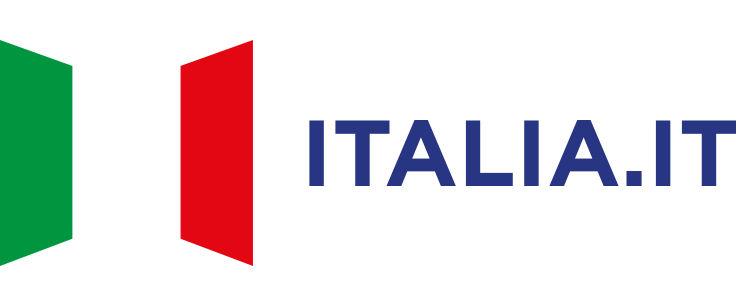
Documentation

What documents are required for EU and non-EU citizens to enter and travel in Italy?
The documentation required to enter Italy varies according to your country of origin:
- for EU citizens and citizens of countries that have signed the Schengen Agreement , a valid identity card is sufficient as an alternative to a passport;
- Citizens from non-EU countries may enter Italy with a passport valid for at least three months after the planned date of departure from the Schengen Area.
Do I need a visa to go to Italy?
When you will need a visa to enter Italy
Depending on your country of origin, you may require a visa to enter Italy. You can request a visa from the Italian Embassy or Consulate in your country of residence and it will generally be issued after 90 days. To find out which countries require a visa to enter Italy, please visit esteri.it . On this website, you can enter your nationality, your country of residence, the duration of your stay (less than or more than 90 days) and the reason for your trip. Remember that once you arrive at the border, the authorities may request documentation justifying your reasons for and duration of your stay in Italy.
If you are staying at a hotel or other accommodation, its manager will fill out a Declaration of Presence for you, which they will then send to the Police Headquarters. However, it is always a good idea to always carry a copy of the Declaration with you, so that you can show it to the police in the event that they want to check.
If you enter Italy from a country outside the Schengen Area, the uniform Schengen stamp , which is affixed to your passport during border control, replaces the Declaration of Presence. If you enter Italy from a Schengen Area country and do not stay in an accommodation facility, you must submit a Declaration of Presence to the Police Headquarters of the province in which you are staying within eight days of entering Italy.
Travel insurance in Italy: tips for a smooth journey
Travel insurance is always recommended: this ensures that you are financially covered in the event of delays or flight cancellations, and you won’t be caught out in the event you experience health problems.
It is always a good idea to keep a screenshot or PDF copy of bookings for flights, hotels or other documents on your phone: this makes it easier to show information if requested.
All you need to know
How to travel to italy, how to get around, phone calls and internet, daily schedules and public holidays, save your favorite places.
Create an account or log in to save your wishlist
Do you already have an account? Sign in
Italy Travel Restrictions
Traveler's COVID-19 vaccination status
Traveling from the United States to Italy
Open for vaccinated visitors
COVID-19 testing
Not required
Not required for vaccinated visitors
Restaurants
Not required in public spaces and public transportation.
Italy entry details and exceptions
Ready to travel, find flights to italy, find stays in italy, explore more countries on travel restrictions map, destinations you can travel to now, dominican republic, netherlands, philippines, puerto rico, switzerland, united arab emirates, united kingdom, know when to go.
Sign up for email alerts as countries begin to open - choose the destinations you're interested in so you're in the know.
Can I travel to Italy from the United States?
Most visitors from the United States, regardless of vaccination status, can enter Italy.
Can I travel to Italy if I am vaccinated?
Fully vaccinated visitors from the United States can enter Italy without restrictions.
Can I travel to Italy without being vaccinated?
Unvaccinated visitors from the United States can enter Italy without restrictions.
Do I need a COVID test to enter Italy?
Visitors from the United States are not required to present a negative COVID-19 PCR test or antigen result upon entering Italy.
Can I travel to Italy without quarantine?
Travelers from the United States are not required to quarantine.
Do I need to wear a mask in Italy?
Mask usage in Italy is not required in public spaces and public transportation.
Are the restaurants and bars open in Italy?
Restaurants in Italy are open. Bars in Italy are .

DGIT - Directorate General for Italians Abroad and Migration Policies
- Visa for Italy
- Rules and Instructions
- Useful Links
- Outsourcing
- Rights and duties of foreign nationals
- Info familiari UE
- USEFUL LINKS

- Technical Cookies : used to store the session ID ; expire at the end of each browsing session.
- Google Analytics cookies (*) : identify the Web pages visited, the number of accesses made to tenders and the date/time of access.
What you need to know about traveling to Italy right now

Aug 23, 2021 • 6 min read
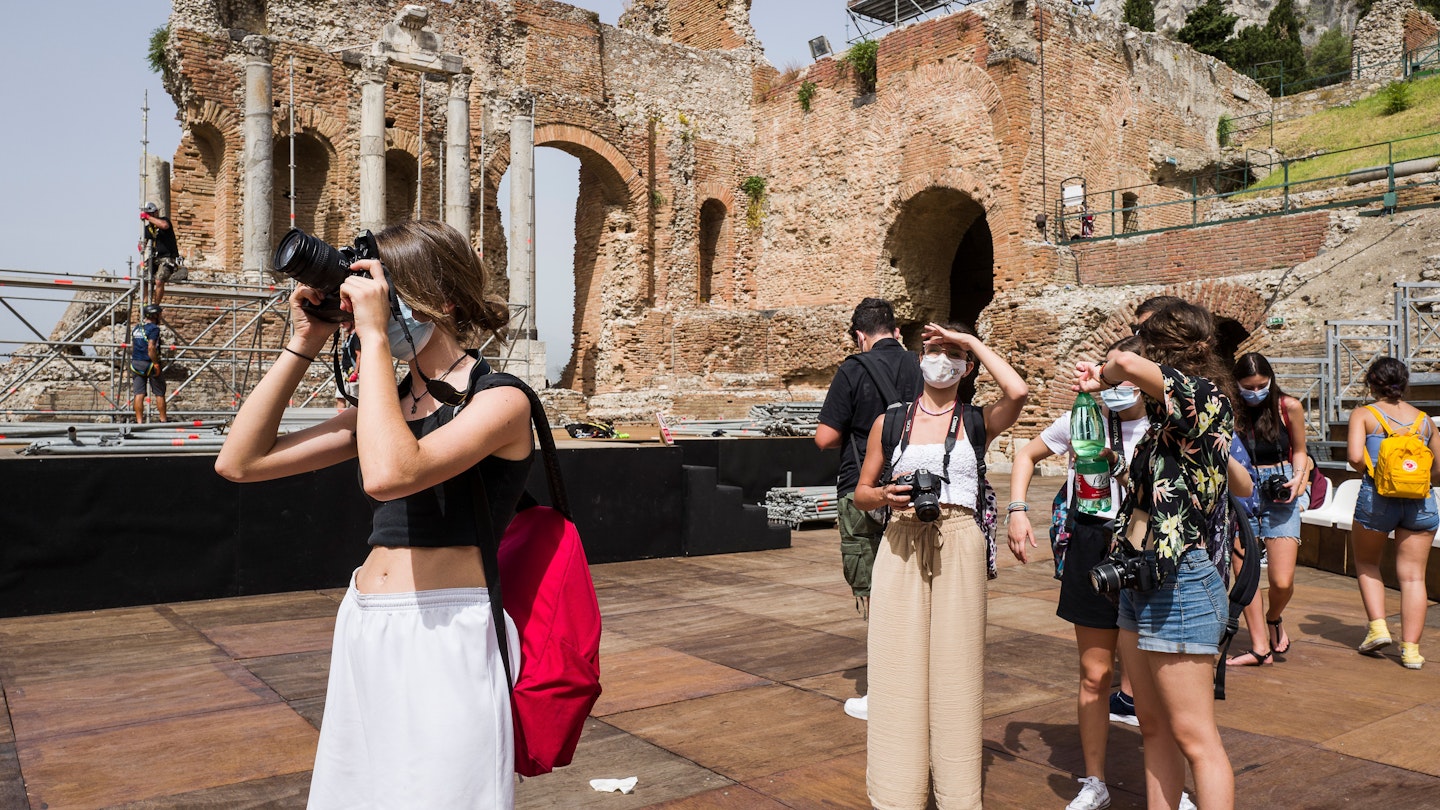
Tourists return to the Teatro Antico in Taormina, Sicily as Italy relaxes border and domestic restrictions © Fabrizio Villa/Getty Images
Italy has gradually relaxed border controls and most restrictions as travelers return to one of the world's most popular destinations. And while there are plenty of new attractions to enjoy, from newly-opened secret tunnels in the Colosseum to recent discoveries in Pompeii , it isn't business as usual. Italy is still in a state of emergency and some pandemic-related restrictions apply, including the requirement of a green pass to enter indoor venues and large events.
With the ongoing threat of the Delta variant, travelers are warned that increased measures could be enforced with little notice. If you're planning a trip to Italy this year, here's what you can expect.
Can I travel to Italy from the EU?
Italy has adopted the EU digital COVID certificate which facilitates the return of free movement across the bloc. It's a digital or paper certificate that indicates the holder meets the conditions for travel: is fully vaccinated (the last dose administered at least 14 days before departure), or has recovered from COVID-19, or holds a negative COVID-19 result from a PCR or antigen test taken within 48 hours of travel.
Read more: Planning your perfect trip to Italy's Amalfi Coast
You will need to present this cert to enter Italy, regardless of where you are traveling from in the EU. That's because Italy does not classify risk areas in accordance with the EU's recommendations and currently no country is classified as low risk. So even if you are coming from an EU country that is classified green (low risk) in the European Center for Disease Prevention and Control’s traffic light system, you are still required to present a digital COVID cert to travel to Italy.
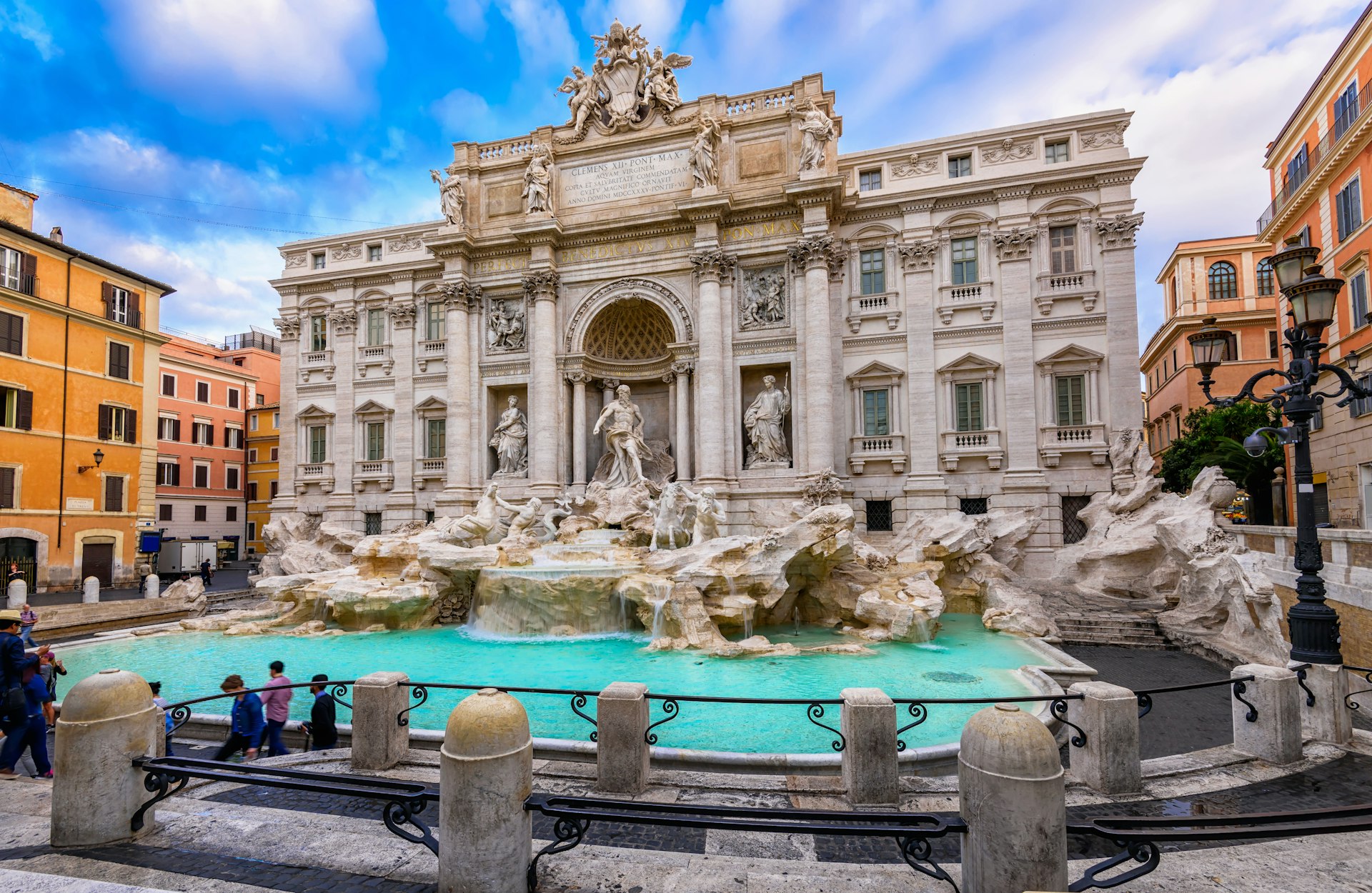
Can I travel to Italy from a non-EU country?
Italy applies border restrictions on travelers depending on the COVID situation in the country they are departing from. Most countries are on the C and D list and quarantine restrictions apply to all of them except for the US, Canada, Japan and Israel . People arriving from those countries are permitted to skip quarantine provided they present proof of vaccination, proof of recovery from COVID-19, or a negative result from a test taken no more than 72 hours before traveling to Italy, using official vaccination or medical documents issued in either of those countries.
Those arriving from the UK will have to undergo a five-day quarantine upon arrival with mandatory testing until at least August 30.
Entry restrictions for individual countries can be found here .
What vaccines does Italy accept?
Italy requires that travelers are fully vaccinated with both doses of an EMA-approved vaccine: Pfizer, Moderna, or AstraZeneca; or with the one-shot Johnson & Johnson vaccine.
Do children need to be vaccinated to enter Italy?
Children under six-years-old are exempt from all vaccine, testing or quarantine requirements in Italy. However, children between the age of six and 18 are required to present a negative COVID-19 test result before arrival.
What else is required?
All arrivals are required to fill in a passenger locator form before arrival, regardless of their COVID status or point of departure.
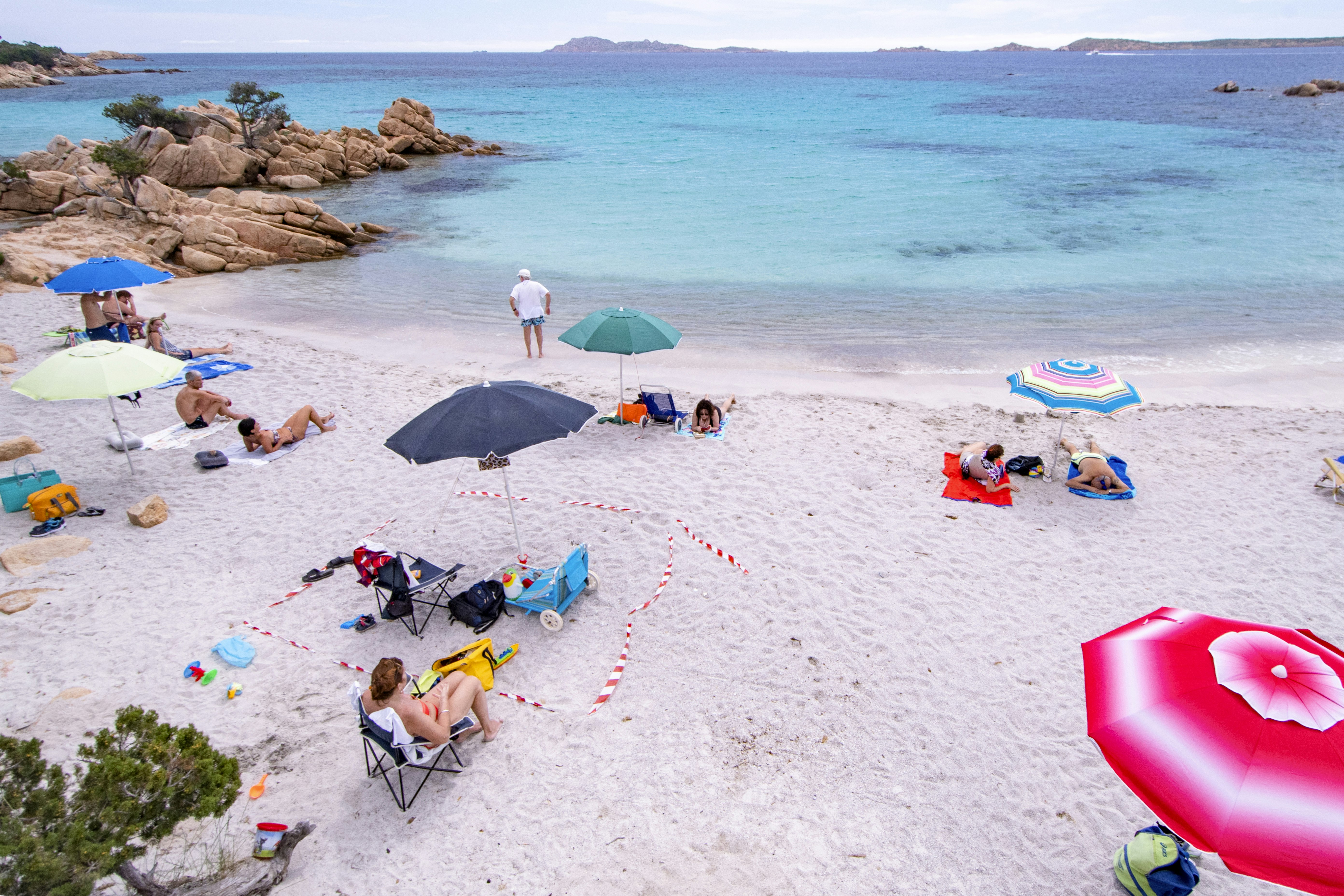
Do I need a green pass in Italy?
Yes, if you want to enjoy most of Italy's cultural attractions, you'll need a green pass. The pass proves that the holder has been vaccinated, has recovered from COVID-19 or has recently tested negative for the virus. People need to present it to enter indoor spaces such as museums, football stadiums, gyms, theme parks, spas, swimming pools and theaters. It's also required to sit indoors at bars and restaurants; and from September 1, it will be required to board public transport in Italy.
Anyone traveling from another EU country, can present their EU digital COVID cert wherever the green pass is required. People traveling from a Schengen Zone country can present their official health documents too.
The Italian government confirmed that it will accept official COVID documents that were issued in Canada, the US, the UK, Japan and Israel from tourists too in place of a green pass. This was later extended to cover all official vaccination certificates that are compliant with Italian or EU guidelines. In order for it to be accepted in lieu of the green pass, the certificate must be in Italian, English, Spanish or French and contain the following information: type of vaccine (Pfizer, Moderna, J&J or AstraZeneca), date of doses and lot number, as well as the person's name and the name of the medical authority issuing the certificate.However, despite the guidelines, some tourists have reported difficulty with having their certificates accepted at venues.
If you're not vaccinated, you'll need to be tested via a PCR or antigen test within the previous 48 hours.
Read more: Italy has expanded the use of it 'green pass' - here's what travelers need to know
Can I get tested in Italy?
Many countries, including the US, require passengers to present a negative COVID-19 test result before boarding their flight home from an international trip. Fortunately, tests are widely available across Italy in pharmacies, labs and testing centers. Antigen tests cost approximately €20, while PCR tests are generally around €65.
The Red Cross has pop-up testing sites in train stations across Italy , including Roma Termini, Milano Centrale, Venice Santa Lucia and Florence Santa Maria Novella for antigen tests. On-site testing is available at Italy's major airports too, and most offer both antigen and PCR tests but check the website of the airport you are traveling through in advance for details.
Read more: Italy visa requirements
What's open in Italy?
Italy is home to many of the world's greatest works of art, architecture and gastronomy, and has more Unesco World Heritage cultural sites than any other country. Among its popular attractions are Pompeii , where visitors can walk in the footsteps of ancient Romans, and Ravenna , home to glittering Byzantine treasures. The gondolas of Venice take in the famous Rialto Bridge , while Rome is home to St Peter's Basilica, the Vatican Museums and the Colosseum, as well as the iconic Trevi Fountain.
Thankfully, you can experience these sites with relative ease as all Italian regions are now classified as "white zones". Italy classifies its regions into colored areas based on the epidemiological risk; different restrictions apply, depending on the color. White zones are very low-risk zones. Most restrictions have been lifted but social distancing guidelines remain in place in public areas, as do mask requirements in crowded outdoor places, on public transport and in indoor public spaces.
Indoor dining has returned to Italy's restaurants, cafes, bars, ice-cream parlours and pastry shops. Some capacity limits apply but the general rule is no more than six people per table. Anyone who wishes to eat inside will need to show proof of vaccination, recovery from COVID-19 or a recent negative test. Hotels, spas and swimming pools are open, as well as beaches but visitors must keep at least one meter apart when setting up towels, deck chairs or umbrellas.
Museums and cultural attractions are open for walk-ins with capacity limits Monday to Friday and for those with pre-booked tickets on weekends. Cinemas, theaters and concert halls are generally open at 50% capacity. Again, remember to bring your vaccination card if you're planning to visit any museum or cultural attraction in Italy.
For a full breakdown of restrictions per region, see here .
This article was first published on May 5 and updated on August 23, 2021.
You might also like:
Eat Italy: learn about Italian food culture with Lonely Planet's new book 12 essential places to visit in Italy The 10 best beaches in Italy
This article was first published May 20, 2020 and updated Aug 23, 2021.
Explore related stories

May 16, 2022 • 4 min read
The policy changes on May 16, but there are still many countries who require passengers to keep masks on during flights.

May 10, 2022 • 4 min read

May 4, 2022 • 3 min read

Apr 29, 2022 • 2 min read

Apr 22, 2022 • 3 min read

Mar 31, 2022 • 9 min read

Feb 24, 2022 • 2 min read

Feb 18, 2022 • 3 min read

Feb 3, 2022 • 3 min read

Jan 18, 2022 • 7 min read
This site uses technical and analytics cookies. By continuing to browse, you agree to the use of cookies.
Header, social and menu of site

Ministero degli Affari Esteri e della Cooperazione Internazionale
Ricerca sito live, general conditions for the entry of foreigners into italy.
Entry into the Schengen Area and into the Italian territory of foreigners coming from external borders is permitted only to foreigners who:
- show up at a border crossing point;
- have a passport or other recognised equivalent travel document valid for crossing borders;
- have documents justifying the purpose and conditions of their stay and prove they have sufficient financial means in relation to the nature and duration of their stay and the cost of returning to the country of origin (or for transit to a third State);
- have a valid entry or transit visa, where required;
- are not reported to be subject to an alert for being refused entry into the Schengen Information System (SIS) ;
- are not considered to be a threat to public order, national security or the international relations of any of the Contracting Parties, by national provisions or those of other Schengen States.
A foreigner already living in a Schengen State and holding a stay permit is exempt from the visa requirement for stays not exceeding 90 days in a 180-day period , provided that entry into Italy is not for the purpose of employment, self-employment or study/internship-training.
A foreigner who does not meet even one of these requirements may be subject to refusal of entry, which can be enforced by the competent border authorities even in the presence of a regular entry visa.
Customise consent preferences
We use cookies to help you navigate efficiently and perform certain functions. You will find detailed information on all cookies under each consent category below.
“Necessary” cookies are technical cookies stored in your browser as they are essential for enabling the basic functions of the website.
We also use analytics cookies to collect information, in aggregate form, about the number of users visiting the site and how they interact with it. In order to respect the privacy of our users, the IP addresses of those who browse the website are made anonymous.
You can choose whether to enable or disable analytics cookies.
Cookies on GOV.UK
We use some essential cookies to make this website work.
We’d like to set additional cookies to understand how you use GOV.UK, remember your settings and improve government services.
We also use cookies set by other sites to help us deliver content from their services.
You have accepted additional cookies. You can change your cookie settings at any time.
You have rejected additional cookies. You can change your cookie settings at any time.
Register to vote Register by 18 June to vote in the General Election on 4 July.
- Passports, travel and living abroad
- Travel abroad
- Foreign travel advice
Warnings and insurance
This travel advice page also covers the Vatican City.
The Foreign, Commonwealth & Development Office ( FCDO ) provides advice about risks of travel to help British nationals make informed decisions. Find out more about FCDO travel advice .
Before you travel
No travel can be guaranteed safe. Read all of the advice in this guide and and any specific travel advice that applies to you:
- women travellers
- disabled travellers
- LGBT+ travellers
Follow FCDO travel on, Twitter , Facebook and Instagram . You can also sign up to get email notifications when this advice is updated.
Travel insurance
If you choose to travel, research your destinations and get appropriate travel insurance . Insurance should cover your itinerary, planned activities, and expenses in an emergency.
Related content
Is this page useful.
- Yes this page is useful
- No this page is not useful
Help us improve GOV.UK
Don’t include personal or financial information like your National Insurance number or credit card details.
To help us improve GOV.UK, we’d like to know more about your visit today. Please fill in this survey (opens in a new tab) .

Italy Travel Requirements: Everything You Need to Know
Planning a trip to Italy is an exciting endeavor, but before you embark on your adventure, it's crucial to understand the Italy travel requirements. Navigating the entry regulations, COVID-19 restrictions, and specific guidelines can ensure a smooth and hassle-free experience. In this comprehensive guide, we will delve into the Italy travel requirements, including visa considerations, COVID-19 protocols, transportation guidelines, and more.
Entry Requirements for Travelers to Italy
Every time you plan your next trip, you not only have to think about the price, which sights to explore, hotel, and flights, but also take a moment to check the Travel Requirements. In this case, Italy's Travel Requirements are not that strict, compared to other top travel destinations, but we highly advise you to check them. So, we prepared for you some of the important precautions that you have to consider before planning your next trip to Italy.
Visa Requirements
Italy welcomes visitors from various countries, and the visa requirements differ based on your nationality. It is essential to determine whether you belong to a visa-exempt or visa-required country. If you come from a visa-exempt country, you can enter Italy without a visa for a specified duration. However, citizens of visa-required countries must obtain a visa before their trip. To determine the visa requirements specific to your nationality, you can consult the Italian embassy or consulate in your country .
Valid Passport
A valid passport is an essential document for international travel. Ensure that your passport meets the following requirements:
- Passport Validity Duration - Your passport should be valid for at least six months beyond your planned departure date from Italy.
- Extra Passport Pages - Make sure your passport has blank pages for entry stamps and other necessary endorsements.
Schengen Area Considerations
Italy is a member of the Schengen Area, which allows for visa-free travel among its member countries. If you hold a valid Schengen visa, you can travel to Italy without an additional visa. However, if you are not a citizen of a Schengen country, you have to check whether you need a visa to enter Italy.
COVID-19 Travel Restrictions to Italy
Book Your Hotel to Italy NOW 20% OFF
Overview of COVID-19 Situation in Italy
Due to the global pandemic, Italy has implemented certain travel restrictions and health protocols to safeguard public health. It's essential to stay updated on the COVID-19 situation in Italy before your trip. Monitor travel advisories and consult official sources for the latest information.
Pre-travel Requirements
Before your journey, you may be required to fulfill certain COVID-19-related obligations, including:
- COVID-19 Testing - Check if Italy requires a negative COVID-19 test result taken within a specific timeframe before your departure.
- Health Declaration Forms - Some airlines and authorities may request you to fill out health declaration forms to ensure you are not experiencing any COVID-19 symptoms.
Quarantine or Self-Isolation Requirements
Italy's quarantine or self-isolation requirements may vary depending on your vaccination status. Here's a general overview:
- Rules for Vaccinated Travelers - Fully vaccinated travelers might be exempt from quarantine requirements, but it is essential to check the latest guidelines.
- Rules for Unvaccinated or Partially Vaccinated Travelers - Unvaccinated or partially vaccinated travelers may be required to undergo quarantine or self-isolation upon arrival. The duration and specific conditions can vary, so it's crucial to stay informed.
Digital COVID-19 Certificates and Health Passes
Italy may recognize digital COVID-19 certificates or health passes as a means to facilitate travel and access various establishments. These certificates may provide proof of vaccination, negative test results, or recovery from COVID-19. Check if such certificates are required and how to obtain them before your trip.
Transportation Considerations
When it comes to transportation when visiting Italy, you can be calm, as Italy has an amazing geo-location, allowing its tourists to use various transport methods. And as every transport method has benefits and drawbacks, you have to know which suits you best. So, let's take a look at some of the essential requirements that you have to consider when planning your trip to Italy.
Flight Requirements
If you plan to travel to Italy by air, consider the following:
- Airline-Specific Regulations - Different airlines may have specific requirements , such as pre-flight testing or health declaration forms. Familiarize yourself with your chosen airline's guidelines to ensure compliance.
- Entry Forms and Documentation - Complete any required entry forms, including passenger locator forms, to provide necessary information to authorities upon arrival in Italy.
Land and Sea Travel Considerations
If you are entering Italy by land or sea, additional regulations may apply:
- Cross-Border Regulations - Understand the specific requirements for crossing land borders or entering through seaports.
- Ferries and Cruises - If you plan to travel to Italy by ferry or cruise ship, be aware of any specific protocols or documentation needed for embarkation and disembarkation.
Specific Travel Restrictions and Regulations
Italy is one of the most welcoming countries to visit in the world. This iconic destination has amazing sights, beaches, shopping centers, islands, amazing food, and many more, but you should be aware of the travel regulations and restrictions that you may run into. Let's see what are the specific factors you should consider regarding Italy's Travel restrictions and regulations.
Specific Regions or Cities
Italy's travel requirements may vary between regions or even cities. Some areas might have additional restrictions or entry requirements due to local circumstances. Research and stay informed about specific regulations that apply to your intended destinations in Italy.
Travel Restrictions for Certain Activities
Certain activities, such as visiting cultural sites, and museums, or enjoying nightlife and entertainment venues, may have their own restrictions or guidelines. Check if there are any specific requirements or limitations in place for these activities during your visit.
Useful Resources and Contacts
Official government websites.
Stay up-to-date with the latest information by visiting official government websites, such as the Italian Ministry of Foreign Affairs or the Italian National Tourism Board. These websites provide valuable resources and updates on travel requirements.
Embassy and Consulate Information
Contact the Italian embassy or consulate in your home country for specific guidance regarding visa requirements, travel restrictions, and any other concerns you may have.
Travel Advisories and Updates
Regularly check travel advisories issued by your country's government or international organizations, such as the World Health Organization (WHO) or the Centers for Disease Control and Prevention (CDC). These advisories provide valuable information about the current situation in Italy and any evolving travel restrictions.
Understanding and complying with the travel requirements for Italy is essential to ensure a smooth and enjoyable journey. By familiarizing yourself with the entry regulations, transportation guidelines, and specific restrictions, you can better prepare for your trip. Remember to stay informed, consult official sources, and check for updates as your travel dates approach. With thorough planning and adherence to the requirements, you can make the most of your visit to beautiful Italy.
Italy is one of the most visited countries in the world, so it's definitely worth going there. Italy has incredible nature, full of amazing beaches, delicious food, ancient monuments, shopping centers, and beautiful hotels that you can stay at. So, if you are still looking which country to visit next, take a look at this European Gem .
Frequently Asked Question
❓ do i need a visa to travel to italy.
It depends on your nationality. Some countries are visa-exempt, while others require a visa. Check with the Italian embassy or consulate in your country for specific requirements.
❓ How long should my passport be valid to enter Italy?
Your passport should be valid for at least six months beyond your planned departure date from Italy.
❓ Are there any COVID-19 testing requirements for traveling to Italy?
Yes, Italy may require a negative COVID-19 test result taken within a specific timeframe before your departure.
❓ Do vaccinated travelers need to quarantine upon arrival in Italy?
Fully vaccinated travelers may be exempt from quarantine requirements, but it's essential to check the latest guidelines.
❓ Are there specific entry requirements for traveling by air to Italy?
Airlines may have specific regulations, such as pre-flight testing or health declaration forms. Check with your airline for their guidelines.
❓ Are there any restrictions for visiting specific regions or cities in Italy?
Yes, some regions or cities in Italy may have additional restrictions or entry requirements. Research and stay informed about the specific regulations in your intended destinations.
❓ Where can I find official information about Italy travel requirements?
Visit official government websites, such as the Italian Ministry of Foreign Affairs or the Italian National Tourism Board, for the latest information.
❓ What should I do if I have more specific questions or concerns?
Contact the Italian embassy or consulate in your home country for personalized guidance and assistance.
❓ How can I stay updated on travel advisories for Italy?
Regularly check travel advisories issued by your country's government or international organizations like the WHO or CDC for the most up-to-date information on travel restrictions and guidelines for Italy.
Related Articles
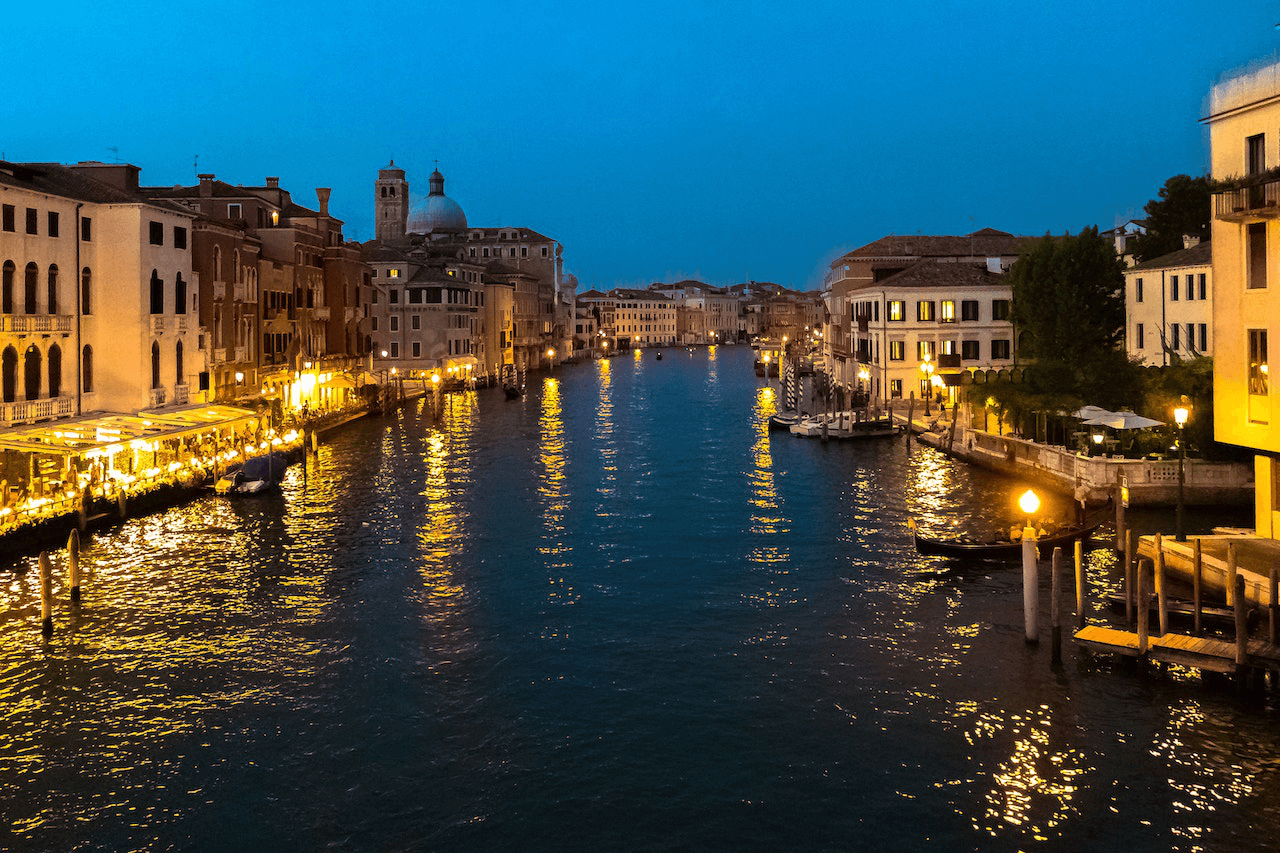
Top Tips for Traveling to Italy
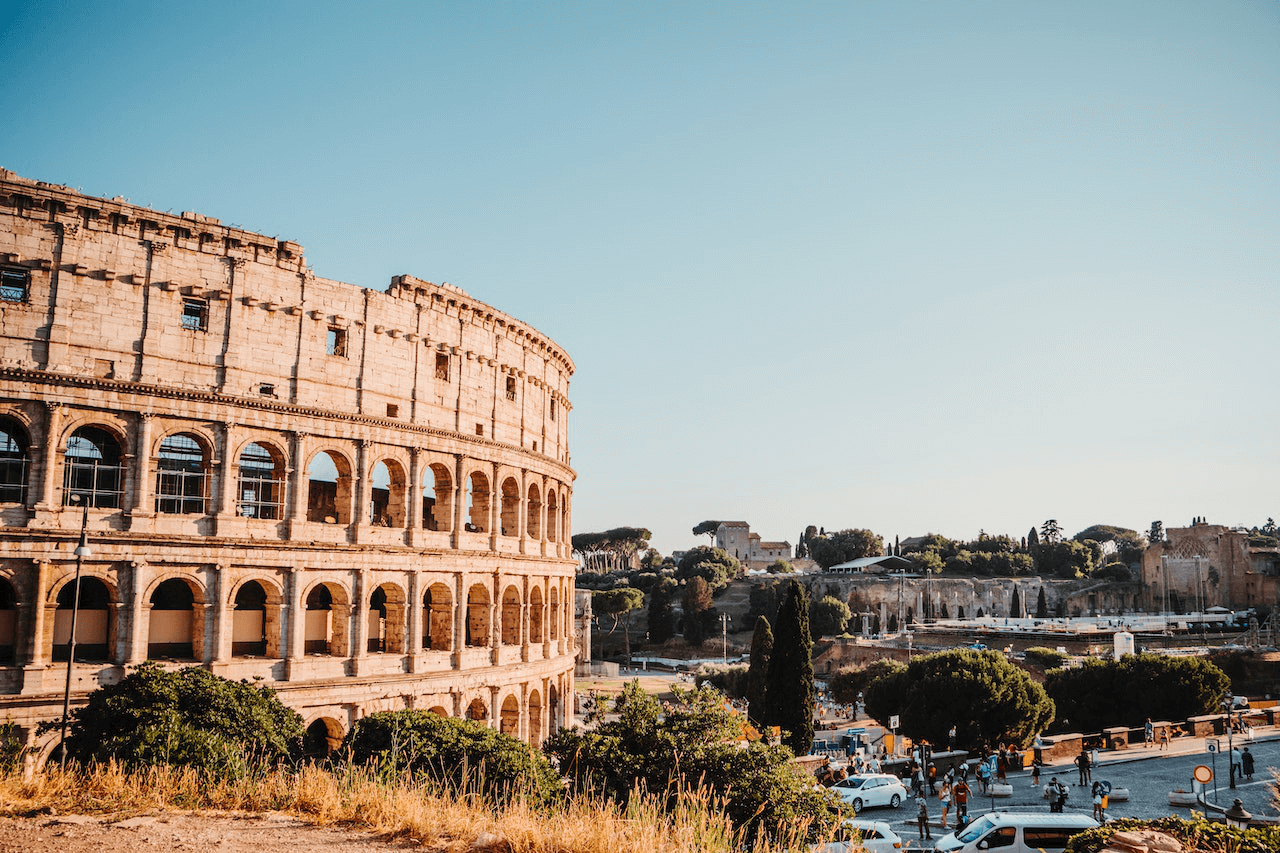
The Ultimate Budget Travel Guide to Italy
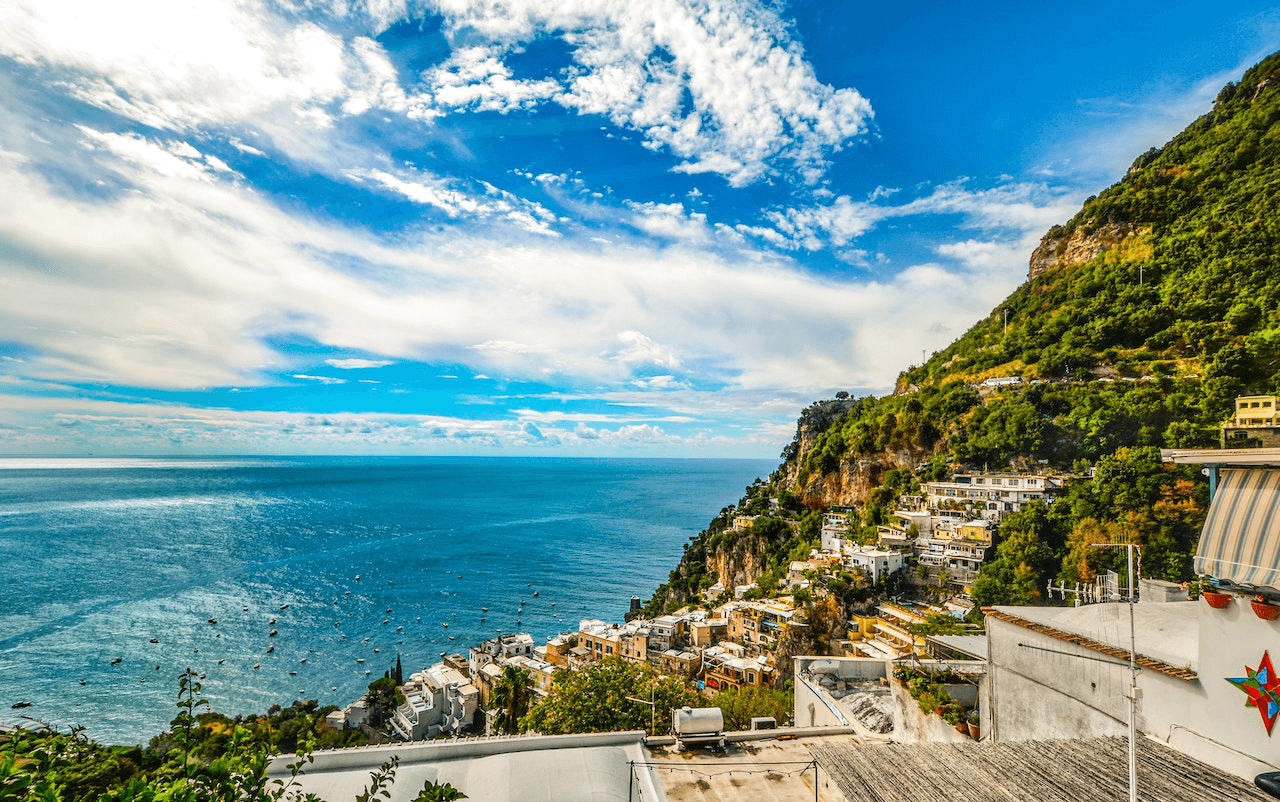
Complete Travel Guide to Italy: Exploring the Land of Art, History, and Culinary Delights
Information.
TouristsInsider is a tourism blog, created by motivated travelers, who want to show you the beauty of many places all over the world.
We may earn a small commission each time you take action using one of our links. This will help us improve and provide you with even better content.
- Privacy Policy
- South America
- North America

Italy travel requirements 2024: What travelers need to know
We aim to keep this post updated about Italy travel in 2024 with official Italy travel restrictions, requirements, and health and safety guidance. Our goal is to help you make informed decisions so you can travel confidently, safely, and responsibly in this new post-pandemic world of ours.
Italy has a special place in our hearts, and we finally returned in Fall 2022.
As restrictions vary based on the traveler’s citizenship, we will focus primarily on rules affecting U.S. citizens.
Last update: January 28, 2024. Originally published: July 2020.
* Get our free Post-Pandemic Travel Checklist *
Photo credit: Annalisa, Rome January 2024: “Tourism in Italy right now is flourishing, and although it is low season, there is a considerable amount of travelers both in art cities such as Rome, Florence, and Venice, and in small villages. In tourist spots such as museums and archaeological areas there are no restrictions of any kind, except in cases of overbooking such as for the Colosseum in Rome, so I recommend booking tickets at least two months in advance. The business of restaurants, hotels, and vacation homes is normal and busy. Access to health care takes place as usual, with regular and free access to checkups and treatment through hospital emergency rooms for Italian residents and nonresidents. As for Covid tests, although they are not required by any tourist facility, they can be done in all Italian pharmacies for a cost of €10-15.” -Annalisa of Rome Travelogues , Resident of Italy
At the end of the post, we share on-the-ground perspectives from local residents and travelers to Italy so you’ll get a true sense of what to expect.
Table of Contents
Can US citizens travel to Italy? Can I travel to Italy right now?
Italy is open to all travelers, including US citizens who are traveling for tourism.
As of June 2022 , all travelers, including US citizens are no longer required to show a vaccination, recovery, or test certificate upon arrival to Italy. All travelers can enter Italy without quarantine.
Most Italy travel restrictions have been lifted as of May 1 for activities inside the country. See regional restrictions here and regional zone classifications here .
Visitors from over 60 visa-exempt countries , including the U.S., will soon be required to have a European Travel Information and Authorisation System (ETIAS) travel authorization to enter Italy and other European countries . The start date has been delayed from 2024 to 2025.
See details about ETIAS here
Quarantine rules in Italy: What happens if I get Covid?
Travelers are not required to quarantine upon arrival in Italy.
For those who test positive for Covid while in Italy, self-isolation for five days or until testing negative, followed by masking up to 10 days, was the latest requirement. More recently, locals report that quarantine is no longer being enforced.
Italy Green Pass Requirements to Enter Restaurants, Attractions and Large Events
You might be wondering: Do I need a vaccine certificate or Covid test to enter restaurants and attractions in Italy?
Italy’s green pass (basic or super green pass) is no longer required to access restaurants, businesses, public transport, or participate in certain activities.
However, the Super Green Pass is still temporarily required for anyone age 12 and older to access hospitals or care homes.
Can Americans travel to Italy in June 2024? Can US citizens travel to Italy this Summer?
Travel to Italy in June is open . Read on for details and check back for updates.
What is it like to fly to Italy FCO or CIA Rome International Airport right now? In Rome, body temperature checks through thermo scanners may be taken at the entrance of the airports. The airports sanitize their spaces daily.
For travelers entering Italy from other countries, check with your airline about current mask requirements on board.
Do Americans have to quarantine when traveling to Italy? Quarantine is not required upon arrival.
See details above.
Does Italy check COVID-19 symptoms of incoming travelers? Body temperature may be scanned in the airports for inbound and outbound travelers.
Does Italy require a negative Covid 19 test for American travelers? A negative Covid test is no longer required to enter Italy.
Does Italy require a proof of Coronavirus vaccine for American travelers? Proof of Coronavirus vaccine is no longer required to enter Italy.
Do I still need to provide a negative Covid test or quarantine if I have been vaccinated? Neither proof of vaccination, negative test, nor quarantine are required to travel to Italy.
Is a booster shot required for travel to Italy? A booster shot is no longer required to enter Italy.
However, a booster shot is needed for the US vaccination card to be considered a valid Green Pass to enter healthcare settings while in Italy. See Green Pass Requirements above.
What Covid testing options are available for travelers in Italy? PCR and antigen tests are available for U.S. citizens and visitors in Italy. Antigen tests cost approximately 20-30 euros while PCR tests can cost around 70.
Individuals in Italy can get a Covid test from the following:
- Government-approved testing labs
- Testing facilities with English-speaking doctors in Italy
- On-site testing facilities at international airports in Italy, such as Milan, Rome Fiumicino, Cagliari, Florence, Malpensa, Bari, Venice, Pisa, and others.
- Private testing labs and pharmacies in Italy
What healthcare options are available to travelers in Italy who get the virus? Tourists and visitors may access Italian health care and emergency services by paying out of pocket or with privately purchased travelers’ insurance. Tourists can also contact the Italian Covid hotline at 1500 (free toll number).
For travel insurance that covers Covid, check out Nomad Insurance by Safety Wing >
What service businesses and restaurants are open in Italy? Bars, restaurants and all other establishments are open. Both indoor and outdoor dining are allowed.
Are face masks required in Italy? As of October 2022, wearing of masks in Italy is no longer mandatory except in healthcare settings.
Are buses and trains running in Italy? Public transportation is available throughout Italy at normal capacity. Masks are no longer required on buses, trains, etc.
Will Italy impose new Covid restrictions? What’s next is difficult to predict. Historically, most countries impose COVID-19 restrictions when strains on the health care system might become unsustainable.
How has the Coronavirus impacted Italy?
Italy was the first country in Europe affected by COVID-19 and was hit hard by the outbreak, requiring strict lock downs. Another large spike in cases occurred at the end of October 2020. A nationwide state of emergency continued through 2022.
Italy’s economy, which includes a large tourism sector, has faced its deepest recession in history. More than 200,000 tourism-related jobs were discontinued in Italy by the end of 2021– accounting for a massive shortage of workers in the country.
In May 2021, Italy formally opened its borders to international travelers from select countries to revive tourism. In June, Italy eased its restrictions for international travelers, then tightened somewhat due to the Delta variant and Omicron variant.
Italy’s state of emergency ended on March 31, 2022.
Italy obtains its vaccines via an EU procurement program. On December 27, 2020, Italy vaccinated the first residents against COVID-19. Currently, three quarters of Italians are fully vaccinated.
For the current situation in Italy – including how bad is covid in Italy today, total COVID-19 positive cases; daily number of cases in Italy; and COVID-19 recovery rates in Italy, please see the statistics here .
What should you pack for safely traveling in Italy?
😷 Face Masks – Face coverings are recommended in public spaces and required in healthcare settings. Find N95 masks at Bona Fide > or designer options at Vida >
💊 Medicine – Bring enough prescription and over-the-counter medication for your entire trip to avoid trips to the clinic.
💳 Vaccine Card Holder – Protect that paper CDC card when traveling abroad (if your country doesn’t offer a digital version). Get a simple plastic protector > or Vegan leather clippable > or Leather passport + card combo holder >
👃 Covid self-test – The most studied rapid antigen self-test with FDA emergency authorization. NOT valid to enter countries. Use for your own peace of mind. Order from CVS > or Walmart >
💧 Sealed water bottle – Make sure your reusable water bottle has a lid that’s not exposed to the air. We use one of each of the following: Shop insulated water bottles with protective lid > Shop water bottles with purification filter and protective lid >
✈️ Travel insurance that covers Covid – We’ve started using Nomad Insurance by Safety Wing for affordable evacuation, international medical, and trip coverage.
What do Italian locals and recent travelers say about visiting Italy now?
What is it like to visit Italy right now? It’s our goal to provide regular updates here from real people on the ground, to help potential visitors know what to expect.
The following are subjective opinions only. Official travel guidance can be found above.
October 2023 – Louisa Loring of EatingAroundItaly , resident of Italy: “Expect to come to Italy and travel as freely as before the COVID pandemic. Currently, there are no laws or recommendations for masking, social distancing or public gatherings. Today, all historic monuments are open as usual without restrictions.
There is no requirement for those who show symptoms. The Italian public healthcare system has removed its state of emergency and it’s easy to access the emergency room.. Private healthcare facilities are free to test patients if they choose too.
Since COVID, there has been an enormous increase in pre-bookings for museums in Italy. Although not all museums require that you pre-book, most people do and it can save you a lot of time waiting in line. Most museums have an easy and hassle free online booking system with paperless tickets.”
September 2023 – Linda of insieme-piemonte.com , resident of Italy: “Italy has, especially in summer, many crowded places. However, beautiful Piedmont, in the northwest of the country, remains a hidden gem: cheap, hospitable and visited by Italians at most in high season.
At the moment, Covid is no longer an issue. There are no restrictions or protective measures. During the pandemic, however, very strict rules prevailed throughout the country, including house arrest for several weeks.”
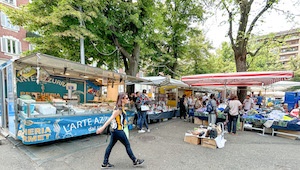
June 2023 – Natalie Deduck of Best of Turin , visitor: “My husband and I come to Turin to stay a month and later travel to other destinations in Italy.
The main tourist destinations such as Rome, Amalfi Coast, Florence, and Milan are receiving a tremendous influx of tourists this Spring and Summer. We are glad that we choose Turin for our longer stay. It is an incredible destination but not as famous as the other places, so here we can enjoy all the best of Italy without hassling with crowds.
Since I landed in Italy, I didn’t see any advice or signals about Covid measures or how to behave in public spaces. No one wears masks, and businesses are open as usual, including bars, restaurants, clubs, museums, and open-air markets.
Everything is pretty much back to normal. My husband and I lived in Turin in 2019 and 2020 during the pandemic. We experienced Italy in its worst moment, and it’s so good and heartwarming to see life back to what it was before the pandemic.”
January 2023 – Zoe of Together In Switzerland, EU visitor: “For our visit to Como, Italy for 2023, the location was pretty busy and lively. All shops and restaurants are open and seemed like a good mix of locals and tourists.
It’s not mandatory, but many do choose to wear a mask such as on the local bus or when in the main shopping area. There were absolutely no checks during our whole visit in Como, however you do see that local stores do still have a those plastic protection areas at the cashier tills and hand sanitizers is available at entrances. We personally didn’t see many people using these and no minimum space was needed. The only crowded area we encountered was for a busy local restaurant that everyone wanted to eat at.”
October 18 2022 -Michelle, Intentional Travelers: “Italy’s tourism feels back in full force and daily life has resumed as normal. Some people wear masks in grocery stores, trains, or other public areas but not many. On the train back to Rome airport, we saw staff sanitizing handrails in all the train cars. Lines at FCO airport seemed typical, and we passed through check-in, security and customs relatively quickly (25 minutes) on a weekday morning. We didn’t have to show any Covid documents, only passports.”
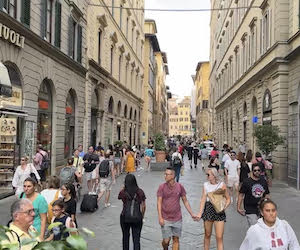
September 2022 – Michelle, Intentional Travelers: “We flew into Florence, Italy and took trains through Tuscany in September. To enter Italy, we only needed our passports. Air Dolomiti airlines required masks on the flight.
The Florence airport tram into town had signs that masks were required but maybe 50% of people were masked. Around Florence, it is as busy as ever and highly recommended to make reservations for big attractions in advance. Masks were still required on the regional trains in Italy, enforced by staff and audio announcements. Otherwise, tourism does seem back to normal.”
June 3, 2022 – S.M, American digital nomad – “I flew today to Rome from Croatia. They didn’t ask for anything covid related. No test or vax cards. But we had to wear N95 mask on the plane, that’s it.”
May 2022 – Lyndsay at thepurposelylost.com : “I’ve been living in Italy and exploring the country for six months now, and the past few days were the busiest I’ve seen the cities! As the weather gets warmer, we’re expecting an uptick in tourism, which is definitely what I’ve encountered so far. Tourists are eager to experience la dolce vita again!
Although you don’t need to wear a mask walking around outside, masks are still required on public transportation like busses, metros, and trains, and highly encouraged for all inside spaces like restaurants and shops. You’ll even find a mix of people wearing masks at public outdoor events.”
March 24, 2022 – Heather American/Italian dual citizen: “I flew into Rome and then proceeded to take several trains and a bus to get to a tiny village in Abruzzo where I will be living for the next five months. Masks are required inside all buildings, and most buildings have signs indicating you need to show a Super Green Pass for entrance. Trains and buses did check for my Super Green Pass and my CDC card showing my booster was accepted readily.
Italians are still taking things pretty serious, regarding masks, etc.”
March 2, 2022 – Sarah Wilson of Life Part 2 and Beyond , British visitor: “I’m in Florence for 10 days learning Italian. I was surprised how many tourists were here over the weekend. Queues were long to many of the major sites. They do check your Green Pass every time you enter a tourist attraction, and restaurant. Some shops also insist on seeing your Green Pass but not all. Masks are being worn inside but not needed outdoors.
There are plenty of pharmacies, many offer COVID testing or the rapid antigen tests. All the pharmacists in a city like Florence speak great English. To reduce waiting in line, I recommend booking attraction tickets online in advance.”
Candice of Mom in Italy , Permanent Resident: “It’s a nice time to visit because you can visit places like the center of Florence and its museums without any crowds.
We’ve also been visiting smaller villages like Pienza, Montepulciano, and San Gimignano, but they’re a little too empty. Almost all shops and restaurants are closed, due to the lack of local visitors. For anyone thinking of coming to Italy right now, I’d stick to the bigger cities, where you’re guaranteed to find things open and still full of Italian ‘vita.’
Throughout the entire pandemic, I’ve been impressed by the cooperation of Italians. People here wear masks when/where required and for the most part, respect the rules. Visitors need to follow the rules too – for example, if you don’t have the Green Pass here, you can’t sit down in an indoor restaurant. Owners don’t distinguish between locals and tourists – everyone has to have their Green Pass scanned or checked.
It’s easy to get tested in Italy – there are private clinics and you can also get tested in pharmacies. You can also get English translations easily. It’s not a great time to come to Italy if you aren’t vaccinated (or have proof of recovery from COVID within the last 6 months). Pretty much anything you’d want to do as a tourist right now requires the Green Pass.
We haven’t found any long lines or crowds, although I expect there will be an influx of visitors in the spring because Italy’s precautions help make it a less risky destination and people are ready to come back to Italia!”
January 2022 – Claudia of Strictly Rome , Italian resident: “All attractions and places of interest for tourists are currently open in Italy. Visits to restaurants typically start with the staff coming to the table to check your “green pass” (the Italian vaccination card). Much like locals, tourists are required to show proof of vaccination or of having recovered from Covid to access attractions, restaurants, hotels and transport – including trains and local / city buses. Everyone in Italy follows the rules, wearing masks wherever required and showing their vaccination card to access public places, restaurants, attractions, transportation and the like. Antigen tests are available at any pharmacy, best if upon booking and depending on the city and region in Italy there may be a line to get tested. Access to health care remains free for everyone on Italian territory, including visitors. You will be significantly better off making restaurant reservations as with Covid restrictions and social distancing availability for tables in popular tourist destinations may be limited.”
December 2021 – Or of My Path in the World , Israeli traveler: “I flew to Turin for a one week leisure trip in December 2021. I felt very safe in Turin as everything was well organized and it seemed like the locals were determined to live “normally” again. Everyone follows the current restrictions, and some people even wear masks outdoors though it’s not mandatory. You can’t enter a museum or a restaurant without your Green Pass being scanned (unless you’re sitting outside), and some attractions require a reservation in advance because you need to pick a specific timeslot for your visit. There are quite a few places for covid tests, and a PCR test for your flight back home will cost you about 70 Euros.”
November 30, 2021 – Morgan Fielder, Crave the Planet , E.U. expat: “It’s so great and easy to get reservations at awesome restaurants with fewer tourists. The airports in Italy have gotten more efficient and travel has been extremely easy since August if you are vaccinated and keeping your mask on appropriately. Yes, people follow the rules. Access is good to hospitals and if there’s any hint of problems, then businesses and events have gone to only letting in vaccinated or recovered people. Contract tracing is done via app when you go inside a venue or restaurant.”
September 20, 2021 – Sarah Wilson , British expat in Malta: “I was in northern Italy at the beginning of September for two weeks and now I’m in Sicily until the end of the month. The locals are very welcoming. It’s been a tough time for many businesses in Italy, so they are very happy to receive tourists. I literally had Rome to myself, so if you enjoy travelling without the crowds, now is the time to visit. To enter any restaurant, museum or tourist site, you do have to show your vaccine certificate. Some places like the restaurants in Lake Como also asked for your name and phone number. Masks are worn on all public transport and indoors and majority comply. Sicily has recently turned yellow which means masks are supposed to be worn indoors and outdoors – very few wear them outdoors – it’s too hot.”

August 2021 – Abigail, American traveler : “I went to Italy for a weekend. I felt safe and all of the stores were open. There was a green pass that people used to dine indoors, however since I’m a US Citizen I did not have one. Instead I showed my vaccination card, and it was asked for at every establishment. They did not ask for the Covid pass for public transport for Venice or Milan during my stay. For sit down restaurants, they wouldn’t let you in the door if you could not show vaccination. I did see a lot of seats for outdoor dining everywhere I went though.”
August 2021 – Caroline A., South African/Italian visitor: “My husband, 7 year old son, 4 year old daughter and I are in Rome for three months for an adventure as we have dual citizenship. Tourists are very much welcome in Rome at the moment although museums are requiring the green pass to enter. Since we are not vaccinated, we have been getting tested for entering museums, which lasts 48 hours. Testing is widely accessible. Most attractions are open for visits with covid protocols in place. There is a festive mood in the air as many people take their vacation over this time. It is wonderful not to have to wear a mask outside.”

July 2021 – Kathryn, American Traveler: “I flew from Spain to Naples, Italy and stayed 2 days in Positano, 2 days in Sorrento, and 4 days in Rome. The locals were happy to have patrons in their cafes and restaurants. We had several people tell us how happy they are to see return of tourism. All public transportation was running as it would pre-pandemic (masks always required). We took planes, trains, taxis, boats and buses with no restrictions. Some restaurants required you to write down name, phone number, country of origin for contact tracing. Otherwise, no restrictions for outdoor dining and tables were quite close to each other as you would typically experience in Europe. Indoor dining often had more space between tables to allow for social distancing. In Rome, there were quite a few walk-up COVID testing tents throughout the city to use if needed. Rome sights were much less crowded than what I’ve experienced past summers. All major tourist sites were open. They offered both advance tickets and walk-up (usually wouldn’t be possible due to large numbers of tourists in the summer, but with less tourists this year it was possible to purchase day-of tickets). They had temperature checks at most major sites and required masks if indoors.”
June 2021 – Alexander and Cynthia, Travel your Memories , Dutch visitors: “We flew to Rome and visited for 4 days. After Rome we travelled to Florence for 2 days. Because you can do many activities outside, Italy is prefect to travel to at the moment. The population pays very close attention to the guidelines of COVID. All sights have been adjusted accordingly. Only a maximum number of people are allowed in the shops (depending on the size). If you get cold symptoms, you can go to a test street. For major sights it is important to book your ticket in advance because you have to fix a time slot.”
May 2021 – Sarah, Benvenuti Arts, American: “I have a visa as I’m here to teach at a University, and traveling into Italy felt joyful! The crew on the flight were so happy to see us all, and there were only about 30 passengers on the plane. The customs officials were very nice and the people doing COVID-testing in the airport were very friendly. While the rules, as read, seemed more strict than the US, I’m noticing people’s interpretation of those rules is just as scattered as in my country. I happened to arrive right when they reopened after the Easter lockdown, and people seem to be thrilled to be outside. We wear masks in all public areas, and there is no indoor dining, so in general it feels safe. But I am finding myself a bit overwhelmed by crowded areas, like places where students hang out. That’ll take some time to get used to again! I would say, if someone is traveling soon, be respectful and be overprepared. Rules were changing weekly in the lead up to my visit, so I have so much documentation printed that I haven’t needed. Everything takes a bit more preparation than you might be used to in Italy, too. Some restaurants require reservations. Museums are open, but with timed, pre-reserved tickets. There is no indoor dining. There’s a curfew. I am usually loose with my planning when I travel, but am doing more of it just because it’s required. But the food is amazing, the people are lovely, and the city is beautiful, so even with some adaptations, it’s amazing to be here!”
April 2021 – Chicca, Cooking in Tuscany , Italian resident: “We have been living a lockdown life since October – I have to say we’ve got so use to it. But just these days our prime minister has announced to relax some of the strict coronavirus measures starting April 26. The vaccination plans are rolling out quite consistently to have the majority of the population vaccinated by this summer. I read here and there that maybe borders will be opening first to Europeans and then to Americans. We don’t know when but, yes, I start dreaming of having visitors again.”

January 2021 – Clotilde, A Princess Travelling with Twins , Italian living abroad: “I flew to Rome, with my husband and our twins over the Christmas period for 10 days to visit family. People working in the tourist sector are really welcoming and try their best to respect, and make customer respect, the rules and regulations. They have been suffering a lot from the lack of tourists and all the imposed restrictions, so they are happy to see tourists coming back but other people are more cautious. News of the new variants of the virus have particularly made people more alert. The biggest issue when travelling to Italy right now is the rules change really quickly, the country can ban specific countries without warning as happened over Christmas with people coming from the UK. On top of that, each Italian region is defined by a colour depending on the level of the infection rate. This reflects also in services opening times that change unexpectedly and often forget to update their websites or search engines. For example you could be stranded at the airport wondering what to do as the rental car office where you booked your vehicle has closed and the curfew time is approaching, as happened to us! “
September 2020. Rebecca Ann Hughes, journalist – permanent resident of Venice: “Tourist numbers in Italy have been low all summer. For those who come to visit, they are seeing popular tourist destinations as never before, but many businesses are struggling. Locals whose work is fed by tourism are eager to welcome back visitors but many of them, along with those who do not work in the tourism sector, are pushing for a change in tourism. Particularly in Venice, they want visitors who travel “slow”, who are respectful, and who interact with the community. This includes following COVID regulations imposed by local councils and the government. Recently, a tourist on a vaporetto (waterbus) in Venice refused to wear a mask, angering locals and causing a fight to break out. Visitors should be well prepared to follow the regulations in Italy, even if they differ from their home country.
Most tourist attractions, public transport, restaurants, bars and other amenities are open and functioning as normal, albeit with social distancing rules and the obligation to wear a mask. It is possible that some tourist attractions will require advanced booking and may have longer queues if the venue is taking temperatures upon entry. Visitors may often have their temperature taken when entering a restaurant. When entering a building or getting on public transport, use hand sanitiser if it is provided. Testing booths have been set up in many airports and visitors can download a contact tracing app for Italy.”

Planning a trip to Italy?
Check out our other Italy travel resources: – Self Guided Walking Tour of Florence – Lucca Day Trip Guide & Walking Tour – A Guide to Tuscany’s Etruscan Coast – Cooking in Tuscany Classes – Hiking Cinque Terre Itinerary – Packing List for Europe in Fall/Winter – 7 Hidden Gem Towns on Tuscany’s Coast – Best Beaches in Tuscany Italy – Tuscany Castles to Rent or Visit – Why Visit Italy in September
If you have questions or updates about travel to Italy during the Coronavirus crisis or post-pandemic, please let us know in the comments below.
~ Pin this post for later or share with friends ~
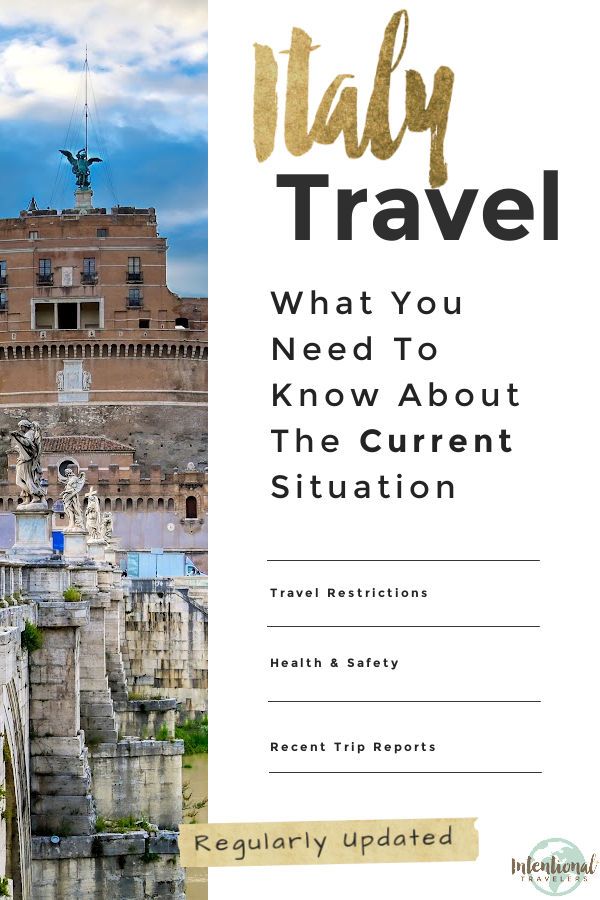
Disclaimer: Please note, travel restrictions change frequently. Readers must take responsibility for verifying information through official sources like the State Department and CDC, in respect to their specific situations. No responsibility can be accepted by Intentional Travelers for action or inaction as a result of information provided through IntentionalTravelers.com. Any information provided here is issued as general information only.
Similar Posts

How to travel safely and responsibly in 2022 and beyond
Wondering how to travel safely during COVID-19? Many of us are longing to travel again, but only if we can do so safely and responsibly. We’ve put a lot of thought into the safest ways to take a vacation right now. And we plan to continually update this post with safe travel ideas and tips,…

Oregon travel requirements 2024: What travelers need to know
We aim to keep this post updated about Oregon travel in 2024 with official Oregon travel restrictions, requirements, and health and safety guidance. Our goal is to help you make informed decisions so you can travel confidently, safely, and responsibly in this new post-pandemic world of ours. We are Oregonians so this destination is very…
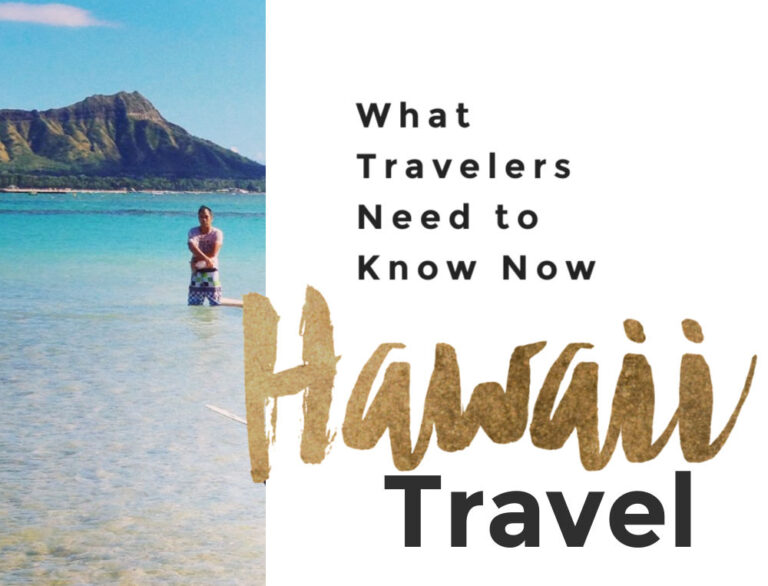
Hawaii travel requirements 2024: What travelers need to know
We aim to keep this post updated about Hawaii travel in 2024 with official Hawaii travel restrictions, requirements, and health and safety guidance. Our goal is to help you make informed decisions so you can travel confidently, safely, and responsibly in this new post-pandemic world of ours. At the end of the post, we share…

Vietnam travel requirements 2024: What travelers need to know
We aim to keep this post updated about Vietnam travel in 2024 with official Vietnam travel restrictions, requirements, and health and safety guidance. Our goal is to help you make informed decisions so you can travel confidently, safely, and responsibly in this new post-pandemic world of ours. Vietnam is a destination close to our hearts….

Ecuador travel requirements 2024: What travelers need to know
We aim to keep this post updated about Ecuador travel in 2024 with official Ecuador travel restrictions, requirements, and health and safety guidance. Our goal is to help you make informed decisions so you can travel confidently, safely, and responsibly in this new post-pandemic world of ours. We stayed in Cuenca, Ecuador in 2022 and…

Rome Food Tour – A Progressive Meal Through The Jewish Quarter With Bitemojo
We’re excited to tell you about a new and exciting way to enjoy a food tour in Rome. With the help of your smartphone, you can experience a progressive meal through secret corners of Rome, at your own pace. You get the benefits of a curated experience with local insights, without the cost or time…
32 Comments
Very useful information, thank you, I will be staying in Sicily for 10 days this July!
Hi! Great info! Is it safe traveling to Italy now from the US because of Ukrania- Russia conflict? Thanks!
Thanks, Wilda. We have a good friend in Tuscany who tells us there is no concern about safety in Italy currently, however, prices and availability of some products/delivery is being significantly affected. We recently sent out a Europe update to newsletter subscribers with the following: “If you have plans to travel to Europe, you may be wondering if it’s still safe. Right now airspace over Russia, Ukraine, Belarus, Poland, Slovakia, Hungary, Romania and Moldova are on the EASA risk list [CNN]. But most of Western Europe is hundreds of miles from the conflict, and experts are saying there’s no need to cancel trips [AFAR].” We are planning to travel to Italy ourselves in September-October. Of course, as with Covid, each of us have to make our own assessment based on the level of risk we’re willing to accept when we travel.
Is there a current ban on US citizens (vaccinated or not) traveling to Italy?
Why are US citizens not allowed to travel to Italy at this time as you stated below. I copied and pasted from your article…. Can Americans travel to Italy in January 2022? Can US citizens travel to Italy this Winter? Travel to Italy in January is now allowed for US citizens visiting for any reason, including tourism. Read on for details and check back for updates.
Hi Jamie. I think perhaps you have misread “is NOW” as “is not”? I’ll reword it to prevent future confusion. As you’ll find throughout the rest of our post, Italy IS open to Americans under certain protocols. Thanks for visiting.
Hi Michelle, thank you for making this information easy to digest. I’m unclear on the “green pass” and “super green pass”.
– Green pass: proof of vaccination – so our white vaccination cards work – correct? And no proof of booster is required?
– Super Green Pass: unclear here.
Also, is the “health declaration form” and the “dPLF” form the same? If not, are both needed?
I plan to visit Italy starting late Feb – Mar ‘22 and am now wondering if I should push this to June. With it all changing so fast, maybe I’m being overly-cautious?
Kate, I’m glad you’ve found our post helpful. Whether pushing the trip back to June will make much difference is hard to say. I’ve shared a bit about my philosophy on canceling/rescheduling trips here .
Some of the green pass rules are quite new and it is admittedly confusing. Also it may change again by March! Firstly, yes, your white CDC vaccination card will work as your pass, as long as the latest vaccination date qualifies.
There is now a time limit on vaccination for the Green Passes (though not for entry into the country). At the moment, this means that if your last Covid shot was more than 9 months ago, you would need a Covid test within 48 hours before checking into accommodations or taking public transit. Starting February 1st, a booster shot will be needed for persons who have been fully vaccinated for more than 6 months. As I read it, if your last Covid shot is more than 9 months old, then you would not be allowed to do the activities under the Super Green Pass like indoor dining, museums, or spas without a booster. Again, there is not a lot of detail available about how this works practically yet.
Sorry for the confusion about the forms – the self-certification health form I think might be an old term so I’ll update that in our post. The dPLF digital Passenger Locator Form is what is now required before travel.
Hi there and thank you for your lovely blog. I am traveling to Italy in February, and my second vaccine dose would be older than 6 months, and not able to get a third dose before arrival. Does than mean that I won’t have a green pass and need to undergo a pcr to enter some places?
Auba, thank you for your question. We were surprised by this restriction. It’s all quite new so how this works out practically may change, but I read it as you do. To confirm, I also found this: “All arrivals to Italy with vaccinations considered as expired by Italian standards (see line above) are required to do Rapid COVID-19 tests (available in local pharmacies and test centres) to obtain a Green Pass, which will be valid for 48 hours. The test provider will print your test results and will email you a unique code. You will then need to access the Government website (in Italian) and enter your details. Select the option ‘Utente senza tessera sanitaria’ (‘User without a health card’). You will be prompted to enter the type and number of the ID you showed when you got your test, as well as the code on your test certificate. Click ‘Ricupera certificazione’ (‘Get certificate’) to download your digital test result. You will need to continue with this process for the duration of your stay to enable travel within Italy and to access hospitality and leisure venues including bars, restaurants, museums, exhibitions, sporting events, fairs, civil or religious ceremonies and large events.”
Nice post! I recently applied for an Italy Visa but was sceptical about the travel restrictions imposed by Italian authorities. So, I started searching for some answers and that is how I came across your informative article. It talks about all the important details that a first-time Italian traveller like me should know. Do share such informative blogs about other countries and any possible restrictions that they are imposing. It might come in handy for a lot of tourists who want to get out of their homes after a long season of the pandemic.
Thanks for a great info. Did they ask the covid pass in the public transport? I read that in intercity trains require at least but would like to know the reality. And if Unvaccinated customers can enter an establishment to buy food, but they are not allowed to eat indoors, are there many restaurants with outdoor areas that can be used without the passport? Thanks a lot
Thanks for your questions. The green pass is required in Italy for domestic planes, ferries, inter-regional trains and long-distance buses. For public transit within a city like buses and metros, there are capacity controls and masks required but not the green pass. Taxi drivers do not check for the green pass. Yes, many restaurants in Italy have outdoor seating. We’ll do our best to gather more testimonials about what this looks like on the ground to update our post in the future.
Trying very hard to find out exactly what happens and what options are available to you should you happen to test COVID positive before your flight back to USA. Especially now that fully vaccinated folks are testing positive. Please advise as soon as possible. Thank you!!
Hi and thanks for visiting our blog. According to the CDC website , “People should self-isolate and delay their travel if symptoms develop or a pre-departure test result is positive until they have recovered from COVID-19. Airlines must refuse to board anyone who does not present a negative test result for COVID-19 or documentation of recovery.” So options are pretty limited at the moment if you test positive before returning to the U.S., and I haven’t heard whether that will be reevaluated any time soon.
Hi Michelle! I am a US citizen and I planned for an Italian trip Sept 3-15. Today is the first day i see about the quarantine requirement lift being ended on August 30. Does this mean August 30 they may decide to implement the quarantine period again? Do you think I will be able to do my trip or will it depend on how the Italian government reacts to this upcoming month? Thank you!
Kim, thanks for visiting our blog. The requirements may not necessarily be lifted but rather *reevaluated* at the end of August. It’s not possible to predict what the decision will be at this time. I’m sure Italy wants to keep tourism open and has new protocols like the Green Pass in place to do so more safely, but each country has to weigh that against health and hospitalization risks. For vaccinated travelers, being able to travel is more likely this Fall but nothing’s guaranteed as things continue to change quickly with this delta variant. I know the uncertainty is difficult, which I wrote about in our recent post here: https://intentionaltravelers.com/should-i-reschedule-my-trip/
Hi Michelle! Thank you so much for the reply, we knew there would be a risk to canceling the trip and we are very understanding and flexible. I just hope that we know in advance enough to not give our hopes up. We are vaccinated so hopefully if they restrict anything it’s unvaccinated folks. I’ll keep an eye out for updates!
We are having a lay over at Heathrow Airport. My interpretation of the Covid rules say we will have to quarantine in Venice for 5 days. Is there a “safe zone” in Heathrow that will allow us to enter Venice when we arrive. We are both vaccinated and have digital copies of our CDC vaccine card.
Thanks for visiting our blog, David. It is my understanding that a layover in the UK would mean you’d need to quarantine for five days in Italy, even if you’re only transiting through the airport unfortunately. I have seen reports of recent travelers rerouting flights to avoid the UK for this reason. It appears the requirement is to be in place through August 30, so if you travel after that, it’s possible the rule could change but there are no guarantees.
Hi. I am traveling to Italy in 3 weeks. Where can i get a negative covid test for my re entry to the US. Pharmacy?? Thanks.
Ciao Gianna. Please see the section in our post labeled “What Covid testing options are available for travelers returning to the U.S.?” for these details.
Great blog We’re travelling to Northern Italy in September and supposed to go to a outdoor concert in Marostica. Do you know if there is any plans to cancel outdoor gatherings? Thanks
Hello and thanks for visiting our blog. It’s still too early to know what restrictions might be in place in which regions come September, but we will be sure to update this post as the situation changes. If the concert takes place as scheduled, you’ll likely need a “green certificate” to attend.
How as an American travelers do I obtain a Green Pass?
Thanks for your question. We were actually just in process of updating this post with new information! More details may be forthcoming but it appears that Americans will be able to show a hard copy of their vaccination card, official proof of recovery, or a negative test result taken within 48 hours in place of the digital pass. We’ll be sure to update our information here as more details become available.
Is colosseum ticket free on the first Sunday of every month after pandemic?
That is a good question. We have covered the free first Sunday opportunity previously on our blog, however, the colosseum now follows a different schedule. Entrance is free on select dates throughout the year, however, I have not been able to find a list of those dates for 2021. I would expect that might be published in a bit further in the future.
News all say US travelers can present CDC vaccination card to skip testing. Not true? June 30 2021
Hi Jiang. Thank you for visiting our blog. That information is correct. A CDC vaccination card can be used by US travelers to obtain a “Green Pass”. US travelers with a “Green Pass” are no longer required to undergo testing or quarantine in Italy.
Excellent info!
Thank you for visiting the blog. Safe travels.
Leave a Reply Cancel reply
Your email address will not be published. Required fields are marked *
This site uses Akismet to reduce spam. Learn how your comment data is processed .
- 2024 TRAVEL UPDATE
- Work with us
- Beyond Bologna
- Regions of Italy
- Travel books
- Best group tours
- Itineraries
- Accommodation guide
- Italian phrases for travel
- Rocket Italian review: 2024 update
- Ultimate Italy Travel Planner
- City Planners
- Essential Guides
- Italy themed gift ideas
- Trip planning services
Can you travel to Italy – latest travel information [June 2024]
This article may contain compensated links. See our full disclosure here
Many people are asking can you travel to Italy in 2024. In this article we outline the conditions for travel to Italy, protocols required on arrival and what to expect when you get there. We will continue to update this page as the situation changes. We do not speculate on the prospects for changes in legislation or on any health related matter.
Last updated: June 2024
Please note that as information can change quickly particularly with respect to different country advisories please check your own government travel advisories and call the Italian embassy in your country for specific information relating to your unique circumstances. We have provided links to these sources below.
You should also check your airline requirements as, depending on the route taken, any stop-overs and specific airline procedures, different protocols may apply.

What are the rules for travel to Italy for tourists?
This page is to assist travelers who have planned leisure or tourist trips to Italy. Different rules and regulations may apply if your travel relates to other purposes such as business, family reasons etc. While every effort is made to keep this page up to date, please check advice from your airline and local authorities for the latest information that applies to your situation.
Article contents
Entry requirements to Italy in 2024
To enter Italy, visitors must:
- Have a minimum of 3 months validity on your passport
- Have a current and valid visa if required (no visa or visa waiver is currently required for citizens of the United States, United Kingdom, Australia, or European Union)
- There is no requirement to show proof of covid-19 vaccination
Documents required on entry to Italy
All passengers (except children under 6 years old) will need to show proof of:
- Your valid passport
- Visa if required
Do I need to take a covid-19 test to enter Italy?
Covid testing is no longer required to enter Italy
Do I need a visa to enter Italy?
Citizens of most countries including the USA, Canada, Australia, New Zealand, and the UK can travel to Italy and wider Schengen area for up to 90 days within a 180-day period without a visa. You can check the visa requirements for your country on this Italian government website .
EU Entry/Exit System (EES)
In late 2024 the European Union (of which Italy is a member) will introduce new standardized set of biometric tests including fingerprints and facial photographs, in addition to passport details currently collected on entry into Italy. This process applies to third-country nationals (non-EU or Schengen Zone citizens) such as visitors from the United States, Canada, Australia, United Kingdom on entering and exiting the European Union.
On arrival into Italy from outside the EU, it is expected that you will present your passport and complete the necessary biometric tests and other questions relating to your stay in Italy at a kiosk in the airport terminal. This process is expected to take around 2 minutes to complete and is not expected to impact processing time at the airport.
There has been no official date announced for the EES however it is expected to be implemented in late October 2024
ETIAS Travel Authorization
The European Union including Italy has announced they will introduce a new travel authorization process called ETIAS for visitors from the United States, Australia, Canada, New Zealand and 60 other countries starting in 2025. There is no confirmed start date for this new process which has already been delayed many years.
Once active, visitors to Europe will need to visit an online site to complete their application and pay a small fee of around €7 per person. The process is expected to take minutes with application approvals also expected to take minutes. There is more information on the official European Union ETIAS website .
The European Union has not confirmed when this process will come into place. We will update this page as more information becomes available.
Venice Tourist Tax
In 2024 the city of Venice is introducing a new tourist tax aimed at day trippers to the city. The €5 per person, per day fee applies on certain days of the year and visitors must be able to show proof of payment OR exemption if asked by authorities or risk a fine. Exemptions apply for those staying overnight in Venice, children under 14 and people with a disability.
Here is the official site for paying the tax or applying for your exemption. You can read more about the Venice tourist tax on this page of our website
Traveling to Italy in 2024?
Consider purchasing travel insurance to cover you for medical emergencies > check out Safety Wing or review policy options and compare quotes
FAQ about travel to Italy in 2024
Is italy allowing international visitors to enter the country.
Yes, the latest advice for international travel from the Italian government was given in June 2022. To check what the situation is for your country of residence and nationality, please go to this Italian government website that aims to clarify the situation for you. This page from the Italian Health Ministry usually has the most up to date general health information and you can find a good summary of information for tourists at the Italian Tourist Board .
Do I need to quarantine on arrival in Italy?
There is no need to quarantine on arrival due to covid-19 however this may not be the case for other infectious diseases. Please see this Italian government website for more info
What is the latest guidance on travel to Italy from my country?
Currently the following advisories are in place. While every effort is made to keep this information current it is best to check with your country travel advisory in the “read more” links below.
- United States – Level 2 – Exercise increased caution – read more
- United Kingdom – Exercise caution – travel info .
- Australia – The Department of Foreign Affairs advises Australians to exercise a normal degree of caution in Italy – read more
- Canada – Take normal precautions in Italy – read more
- New Zealand – Do not travel overseas at this time – read more
Citizens of countries not on this list should refer to their country foreign affairs department.
Can I buy travel insurance to cover my trip?
Travel insurance is strongly recommended for all international travel however many travel insurance companies will not cover your trip for cancelations or health problems related to covid19. Check all policy inclusions carefully before purchasing insurance. Note – many companies will not sell or honor policies at all where a travel ban exists for your country of residence.
Need travel insurance? Review policy options and compare quotes now
There are many reasons to take out travel insurance for Italy – you can read about them in this article .
No matter what decision you make, ensure you understand the risks associated with not having insurance and read the terms and conditions carefully should you decide to purchase a policy .
What is the situation in Italy now?
Is there a state of emergency.
No. The Italian parliament ended the covid state of emergency on March 31st, 2022. From that date, covid restrictions were gradually eased across the country.
Are many people still ill with Covid-19? Are cases increasing?
Cases are stable in Italy. Some restrictions remain in place including mask wearing in some indoor venues such as cinemas and hospitals and on public transportation. To check the latest figures and updates by region visit the Italian Ministry of Health (use Google translate to see English language).
What restrictions and social distancing rules apply?
FFP2 or KN95 masks are required to be worn in hospitals and care homes.
Restrictions by region in Italy
Some regions implement rules differently in Italy. Please check the following pages for regional requirements. Specifically Sicily and Sardinia often add extra requirements.
For specific rules relevant to the areas you are visiting, please visit the following pages.
Abruzzo – Basilicata – Calabria – Campania (Amalfi Coast, Capri, Naples) – Emilia-Romagna (Bologna) – Friuli Venezia Giulia – Lazio (Rome) – Liguria (Cinque Terre) – Lombardy (Milan, Lake Como) – Marche – Molise – Piedmont – Puglia – Sardinia – Sicily – South Tyrol (Dolomites) – Tuscany (Florence, Pisa, Lucca, Siena) – Trentino – Umbria – Valle d’Aosta – Veneto (Venice)
Are the main attractions open?
Museums and galleries are open as usual. Check the main websites regularly for latest updates. You must book your tickets online in advance and attend at your scheduled time.
Do I need to wear a mask in Italy?
You are required to use FFP2 or KN95 face masks in hospitals and care homes. Fines of €400 – €1,000 apply for non compliance. Masks are not mandatory on public transport from 1st October 2022.
Can I travel by train?
Yes you can travel by train. You are no longer required to wear a mask.
Can I eat out at restaurants?
Yes restaurants and bars are open for both indoor and outdoor dining without restriction.
What happens if I fall ill with covid when in Italy?
If you have symptoms you should contact the regional health authority where you are staying immediately. They will arrange a test and determine next steps which will likely mean isolating for at least 5 days and potentially up to 14 days at your own expense if you test positive.
You must be symptom free for 2 days before you able to take a test to show that you are negative and can be released from isolation. Make sure you have adequate health insurance to cover you if such a situation occurs and be aware that your insurance company may not honor claims if you are in Italy when a do not travel order there exists.
Departing Italy – Info for visitors needing to test on departure
Some countries require residents to show proof of negative test prior to boarding your flight home from Italy. Here you’ll find important information on testing and what to do if you test positive before your flight departure.
Testing required on departure from Italy
Here are some useful links for finding a place to get a covid-19 test in Italy
- Book your rapid test in Rome online here
- This is a useful site for finding testing sites in Italy
- Many of our readers from the United States use the BINAX proctored home tests
What happens if I test positive prior to boarding my flight home from Italy?
Should you test positive prior to departure you maynot be able to join your flight. You will need to contact the regional health authority where you are are immediately. They will arrange a further test and determine next steps which will likely mean isolating for at least 5 days and potentially up to 14 days at your own expense at a private property or government quarantine hotel.
You must be symptom free for 2 days before you able to take a test to show that you are negative and can be released from isolation.For this reason travel insurance that covers this scenario is strongly recommended.
FAQ about planned vacations
Sadly many people had trips to Italy canceled in 2020 and 2021. If you have travel plans in 2024 here are the answers to some frequently asked questions about reorganizing travel. While we do our best to keep this as accurate as possible, please refer to your own country consumer law and advice for the latest information.
Unfortunately we cannot assist with individual requests for assistance rebooking or canceling trips.
Will I need to prove I have received a Covid vaccine to enter Italy?
Currently this is not a requirement
Is my flight / cruise / tour still departing?
Flights, tours and cruises may be canceled in 2022. Check with your travel agent or if you booked directly with relevant airlines and cruise companies for the latest information.
What should I do if my flights have been canceled?
If your airline cancels your flights you should be entitled to a full refund under most consumer jurisdictions. Once your flight cancelation is confirmed, the airline should advise when you will receive your refund. Make sure to also cancel accommodation, activity and tour bookings. You can also try to move your travel insurance coverage to new dates.
Refunds apply when the airline cancels your flight. If you choose not to fly then you will be subject to the change and cancelation rules of your fare and any special measures put in place by your airline to respond to the covid-19 situation.
Am I entitled to a refund on my flights / hotels and accommodation / tours?
This depends on the terms and conditions that you booked under and the consumer laws of your country and / or the country where the business is based. While many businesses are trying to refund customers who purchased non-refundable services, others are unable to or have chosen to offer vouchers for future use instead.
The Italian government issued this decree allowing travel companies to offer vouchers for future use instead of refunds. Many companies are applying this ruling to their businesses including the Colosseum and Vatican Museums.
If you are not happy with the compensation offered by the service provider you can file a dispute with your credit card company if you used one to book your travel.
- AirBNB extenuating circumstances policy – click here
- Booking.com covid19 center – click here
What happens if I am offered a voucher and I would prefer a refund?
First, try and negotiate with the company. There are often very serious and legitimate reasons why people will not be able to travel in the future. You should state these clearly and most companies provide an exception in extenuating circumstances. If this does not produce an acceptable outcome, pursue a dispute with your credit card company as the next step.
Steps to take to reorganize or cancel your trip
- Review all your bookings and understand the terms and conditions under which you booked
- Contact the providers to understand their position on refunds and / or rebooking
- Decide what you want to do with respect to rebooking. You may be offered dates in a different time of year than you originally planned to travel. If you want to know what it is like in Italy at different times throughout the year check this article
- Contact your insurance provider to understand if you can recover any funds owing for services you do not wish to rebook
- You may choose to pursue fund recovery with your credit card for services you are not happy with the recourse offered
Recommended official websites for up to date information
- United States
- United Kingdom
- New Zealand
- European Union ‘ Reopen EU ‘ – useful site with latest information on reopening in Italy – includes travel and health information plus details of differences by region
- IATA Travel Center – the International Air Travel Association’s site for up to date travel information used by airlines
- Italian Ministry of Health – tracks cases and issues related to coronavirus in Italy
- Italian Tourism Board – latest information for tourists on visiting Italy at this time (site in English)
Please share if you found this article useful

- General Information
Plan your trip
Travel advice for italy.
Italy is a member of the European Union (EU) and part of the Schengen Convention; therefore, the same conditions apply in Italy as in other EU member state.
In this article, you'll find information on the necessary documentation to travel to Rome and other parts of Italy.
EU Citizens
Italy, since 1958, has been part of the European Union . Therefore citizens of countries belonging to the Schengen Zone may visit Rome with just a passport or valid I.D. document.
US & UK Citizens
American citizens and citizens of the United Kingdom traveling to France for less than 90 days do not need a visa. However, they will need a valid passport for at least six months beyond their stay. Immigration officers may also ask citizens to show enough funds for their stay and a return airline ticket.
Australian and New Zealand citizens
Australian citizens planning on staying in Italy or any other EU member country for less than 90 days are not required a visa . Your passport has to have at least six-month validity from your planned date of return.
New Zealanders do not require a visa to enter Italy and can spend up to three months in the country. However, they will need a return ticket and a passport with at least three-month validity from their planned departure date. Currently, New Zealand has bilateral visa waiver agreements with certain countries in the Schengen area including Italy, which you might want to check out before traveling: Safetravel.govt.nz
EU, EEA and Swiss Citizens
As citizens of the European Union and European Economic Area, you will not need a visa to enter the country.
Germany, Austria, Belgium, Bulgaria, Cyprus, Denmark, Slovakia, Slovenia, Spain, Estonia, Finland, France, Greece, Hungary, Ireland, Italy, Latvia, Lithuania, Luxembourg, Malta, Netherlands, Poland, Portugal, Czech Republic, Romania and Sweden, Island, Liechtenstein and Norway.
Citizens of countries that do not require a visa
The following states do not need a visa for stays up to 90 days, but require a valid passport to enter Italy:
Albania, Andorra, Antigua and Bermuda, Argentina, Australia, Bahamas, Barbados, Bosnia and Herzegovina, Brazil, Brunei, Canada, Chile, Colombia, Costa Rica, Dominica, East Timor, Grenada, Guatemala, Honduras, Israel, Japan, Macedonia, Malaysia, Mauritius, Mexico, Moldava, Monaco, Montenegro, Nauru, New Zealand, Nicaragua, Panama, Paraguay, Peru, Saint Kitts and Nevis, Salvador, Samoa, Saint Lucia, Saint Vincent and the Grenadines, San Marino, Serbia, Seychelles, Singapore, South Korea, Taiwan, Tonga, Trinidad and Tobago, United Arab Emirates, United States of America, Uruguay, Vanuatu, Vatican and Venezuela.
Citizens of states that require a visa
Citizens of countries not previously mentioned will need to get a Schengen (short-stay) visa to enter Italy or any other EU country. For more information, we recommend visiting the official website of the Ministry of Foreign Affairs of Italy:
- Ministry of Foreign Affairs of Italy
You may also be interested in
Our Rome travel guide includes all the necessary and up to date information about the city to help you plan your trip to make the most of your stay.
Health Insurance
When planning the perfect trip to another country, you must never forget to include travel insurance.
Travel Vaccines and Advice for Italy

Of all the places to go in Europe, Italy is first on the list for many people. Italy’s charm is found in its ancient wonders, cuisine and unique landscapes.
The Coliseum, Florentine markets and volcanic ruins, there is no shortage of history waiting to be explored.
Travel can be done a multitude of ways including local flight options, by ferry for coastal towns and to islands or by train or bus. Some of the hidden treasures of Italy need extra planning. But, they are well worth the time.
On This Page: Do I Need Vaccines for Italy? Other Ways to Stay Healthy in Italy Do I Need a Visa or Passport for Italy? What Is the Climate Like in Italy? How Safe Is Italy? Is the Food Safe in Italy? See the Amazing Cinque Terre What Should I Take to Italy? U.S. Embassy in Italy
Do I Need Vaccines for Italy?
Yes, some vaccines are recommended or required for Italy. The CDC and WHO recommend the following vaccinations for Italy: hepatitis A , polio , chikungunya , tick-borne encephalitis , rabies , hepatitis B , influenza , COVID-19 , pneumonia , meningitis , chickenpox , shingles , Tdap (tetanus, diphtheria and pertussis) and measles, mumps and rubella (MMR) .
See the bullets below to learn more about some of these key immunizations:
- Hepatitis A – Food & Water – Recommended for most travelers.
- Polio – Food & Water – Due to an increase in cases globally, an additional adult booster is recommended for most travelers to any destination.
- Chikungunya – Mosquito – A chikungunya outbreak occurred in 2017. Local transmission is still possible in some regions.
- Tick-borne Encephalitis – Ticks – Typically found in alpine areas, especially in the northeast.
- Rabies – Saliva of Infected Animals – Vaccine recommended for long-term travelers and those who may come in contact with animals.
- Hepatitis B – Blood & Body Fluids – Recommended for travelers to most regions.
- Influenza – Airborne – Vaccine components change annually.
- COVID-19 – Airborne – Recommended for travel to all regions, both foreign and domestic.
- Pneumonia – Airborne – Two vaccines given separately. All 65+ or immunocompromised should receive both.
- Meningitis – Direct Contact & Airborne – Given to anyone unvaccinated or at an increased risk, especially students.
- Chickenpox – Direct Contact & Airborne – Given to those unvaccinated that did not have chickenpox.
- Shingles – Direct Contact – Vaccine can still be given if you have had shingles.
- Polio – Food & Water – Considered a routine vaccination for most travel itineraries. Single adult booster recommended.
- TDAP (Tetanus, Diphtheria & Pertussis) – Wounds & Airborne – Only one adult booster of pertussis required.
- Measles Mumps Rubella (MMR) – Various Vectors – Given to anyone unvaccinated and/or born after 1957. One time adult booster recommended.
See the table below for more information:
Specific Vaccine Information
- Hepatitis A – Hepatitis A is an infectious liver disease caused by the hepatitis A virus, often spread through contaminated food or water, or via direct contact with someone infected. It leads to liver inflammation, potentially impairing its function, and manifests as symptoms like tiredness, stomach pain, nausea, and yellowing of the skin or eyes. The vaccine for hepatitis A offers robust protection against this virus. It is typically given in two doses over a six-month period and is advised for those traveling to regions with higher risk or for people more likely to come into contact with the virus.
- Chikungunya – Chikungunya is a viral disease transmitted by infected mosquitoes and can also spread through other means like blood transfusion. To prevent it, use mosquito repellents or wear protective clothing. Vaccination is available and considered the best form of protection.
- Tick-borne Encephalitis – Tick-borne encephalitis, transmitted by infected ticks, poses a risk to individuals in forested areas. Protect yourself by wearing appropriate clothing, using repellents, and getting vaccinated.
- Rabies – Preventing rabies involves avoiding contact with infected animals and ensuring timely vaccination. The rabies vaccine is a critical tool, offering protection through post-exposure prophylaxis (PEP) and preemptive vaccination for high-risk individuals like travelers.
- Hepatitis B – Hepatitis B, a liver infection spread through bodily fluids, poses a significant health risk. Safe practices help, but vaccination is the ultimate safeguard. It prompts the immune system to produce antibodies, ensuring strong and persistent protection.
- Measles, Mumps, Rubella (MMR) – Measles, mumps, and rubella are contagious viral infections, causing various symptoms and complications. To prevent them, vaccination is key. The MMR vaccine, given in two doses, safeguards against all three diseases and helps establish herd immunity, reducing the risk of outbreaks.
As a developed country, Italy does not have many communicable diseases. Make sure you are up-to-date on your routine vaccinations before traveling.
Visit our vaccinations page to learn more. Travel safely with Passport Health and schedule your appointment today by calling or book online now .
Other Ways to Stay Healthy in Italy
Prevent bug bites in italy.
When bitten by bugs, clean the area with soap and water, refrain from scratching, and use over-the-counter remedies. For severe reactions or tick bites, consult a healthcare professional promptly. Following CDC guidelines can help prevent and manage bug bites effectively.
Food and Water Safety in Italy
While dining abroad, prioritize food safety by avoiding street food, practicing hand hygiene, and selecting fully cooked dishes. Opt for sealed bottled or canned drinks. Prevent travelers’ diarrhea by adhering to hand hygiene, skipping raw foods, and dining at reputable establishments.
Altitude Sickness in Italy
Altitude sickness, characterized by symptoms like headache and nausea stemming from oxygen deprivation at high elevations, can be prevented through gradual ascent, hydration, and medication like acetazolamide. Should AMS symptoms arise, immediate descent to lower altitudes, rest and seek medical attention.
Infections To Be Aware of in Italy
- Leishmaniasis – Leishmaniasis is transmitted by sand flies’ bites. To prevent its spread, individuals should use insect repellents, wear long-sleeved clothing and limit outdoor activities during sand fly activity periods. Eliminating breeding sites and early diagnosis are crucial for effective prevention.
Do I Need a Visa or Passport for Italy?
A visa is not required for travel to Italy. But, your passport must have at least three months’ validity remaining.
Sources: Embassy of Italy and U.S. State Department
If you plan to stay for 90 days or more, a visa will be required. You must get this visa before starting your trip.
What Is the Climate Like in Italy?
The climate in Italy differs depending on location.
Winters can be brutal in northern areas near the Alps. Summers can be hot in this region as well. Central Italy remains somewhat constant with mild temperatures throughout the year. In southern Italy, temperatures are warm in winter and even warmer in the summer. Regardless of where in Italy, the climate is described as Mediterranean.
- Milan – Nestled in the northern Italy, Milan is bordered by the Alps. Winters are milder than other northern cities, but summers can be hot. The variety in temperature is typical in Northern cities.
- Rome – Sitting in central Italy, Rome experiences a range of seasons. Most of Rome’s rainfall occurs in the winter. Most other areas in Italy that receive the bulk of the rain in the spring and summer.
- Naples – Is one of the largest and most-traveled cities in Southern Italy. Even in the winter months, temperatures will remain mostly above 50 degrees Fahrenheit. In the summer months, Naples will catch cool breezes off the ocean.
How Safe Is Italy?
Italy is a beautiful place to visit, but it’s important to stay safe. Here are some tips to help you:
- Learn about the places you’ll go, including customs and safety tips.
- Keep your things safe from thieves by using special bags or pouches. Be careful in crowded places.
- Travel with friends or a group, and don’t walk alone at night in dark or empty areas.
- Use safe public transportation, and keep your luggage close on trains.
- Be careful when using ATMs, and don’t let anyone help you.
- Don’t show off expensive items like jewelry or watches.
- Pay attention to your surroundings and watch out for scams or distractions.
- Follow local rules and customs to avoid getting in trouble.
- Have emergency contact numbers and tell your family or friends about your travel plans.
- Get travel insurance to protect you in case something goes wrong.
By following these tips, you can have a fun and safe trip to Italy.
Is the Food Safe in Italy?
Italy is notorious for producing some of the most delectable cuisine in the world. Italian culture is centered around meal time. Most devote a lot of time and energy into the preparation and cooking of every meal. With the culinary bar set so high, it is rare that travelers will sit down to a meal is deemed unsafe for consumption. The only thing to remain wary towards is water. Most restaurants will serve water and sodas in the bottle to guarantee high and consistent quality.
See the Amazing Cinque Terre
Avoid an embarrassing stop, over 70% of travelers will have diarrhea., get protected with passport health’s travelers’ diarrhea kit .
Cinque Terre is a beautiful coastal region in Italy that is a UNESCO World Heritage Site. Its name refers to the five colorful fishing villages nestled along the Mediterranean coastline. The villages are connected by hiking trails that offer breathtaking views of the sea and the terraced vineyards on the hillsides.
Visitors can spend their days hiking the trails and evenings enjoying delicious seafood at one of the local restaurants.
Other popular activities include boat tours, wine tasting and shopping for local handicrafts. Tourists in Cinque Terre will be captivated by its beauty and charm.
What Should I Take to Italy?
Considering where and when you plan on traveling to Italy and for how long, there are a variety of items that should make it into your suitcase:
- Comfortable walking shoes with arch support
- A shawl or scarf to cover your shoulders. There are many churches and religious areas that require modest clothing before entry
- A purse with a latch of some kind. Theft from purses has been known to happen in large crowded cities
- Light and airy clothing for the humid summer months
- An umbrella or rain proof jacket for the occasional rainstorm
- A hat as the sun can be harsh
- If fine-dining is in your plans, pack “black-tie” attire as some restaurants have dress codes
U.S. Embassy in Italy
There is one embassy and three consulates located throughout Italy in major tourism cities. The embassy and consulates can assist in most matters of travel from lost passports to helping victims of crime. There are many issues that are not considered emergencies and these problems can be solved in a more efficient manner if an appointment is made ahead of time.
U.S. Embassy Rome Via Vittorio Veneto, 121 00187 Rome, Italy Telephone: +(39) 06-4674-1 Emergency After-Hours Telephone: +(39) 06-4674-1 Fax: +(39) 06-4674-2244 Email: [email protected]
Visit the Embassy to Italy website before departure to confirm correct contact details for the office.
Ready to start your next journey? Call us at or book online now !
Customer Reviews
Passport health – travel vaccines for italy.

- Records Requests
- Passport Health App
- Privacy Center
- Online Store
Italy Travel: Can I Visit During The Pandemic?
- Last updated May 30, 2024
- Difficulty Advanced
- Category Travel

Italy, the land of romance, art, and delicious cuisine, has long been a dream destination for travelers around the world. However, the COVID-19 pandemic has put a halt to travel plans for many. As the world slowly begins to re-open, people are wondering if it's possible to visit Italy during these uncertain times. In this article, we will explore the current travel restrictions and guidelines in place, as well as any precautions you need to take, to help you navigate your dream Italian vacation during the pandemic.
What You'll Learn
Current Travel Restrictions in Italy
Entry Requirements for Traveling to Italy
Covid-19 testing and vaccination requirements in italy, quarantine and health guidelines for traveling to italy.

Italy, known for its rich history, stunning landscapes, and delicious food, is a popular travel destination for people from all over the world. However, due to the ongoing COVID-19 pandemic, there are certain travel restrictions in place to ensure the safety of both residents and tourists. If you are considering traveling to Italy, it is important to be aware of the current travel restrictions in order to plan your trip accordingly.
As of now, entry into Italy is restricted for non-essential reasons. This means that unless you have a valid reason for traveling to Italy, such as for work, health reasons, or an emergency, you may not be allowed to enter the country. It is essential to check the latest guidelines and restrictions before making any travel plans.
If you are allowed entry into Italy, you will be required to present a negative PCR or antigen test taken within 48 hours prior to your departure. Additionally, all travelers are required to fill out a self-declaration form before entering Italy, detailing their reasons for travel and where they will be staying. It is important to carry a printed copy of this form with you, as it may be requested by authorities.
Upon arrival in Italy, all travelers must quarantine for 5 days, regardless of their vaccination status. This quarantine period can be shortened to 2 days if you present a negative PCR or antigen test taken on the fifth day. It is essential to follow the quarantine guidelines and restrictions, as failure to do so may result in fines or other penalties.
During your stay in Italy, it is important to be aware of any regional restrictions that may be in place. Different regions in Italy may have their own rules and regulations regarding gatherings, curfew, and mask wearing. It is advised to stay updated on the local guidelines and follow them accordingly to ensure the safety of yourself and others.
It is also important to have comprehensive travel insurance that covers any potential health issues or travel disruptions. This can help provide peace of mind and financial protection in case of any unforeseen circumstances.
As the situation is constantly evolving, it is important to regularly check official government websites and travel advisories for the latest information and updates. Travel restrictions and guidelines may change at any time, so it is crucial to stay informed before and during your trip.
In summary, if you are considering traveling to Italy, it is essential to be aware of the current travel restrictions and guidelines in place. Entry to Italy is currently restricted for non-essential reasons, and all travelers must present a negative COVID-19 test and fill out a self-declaration form. Upon arrival, a mandatory quarantine period of 5 days is required, with the option to shorten it to 2 days with a negative test. Regional restrictions may also be in place, so it is important to stay updated on local guidelines. By following these restrictions and guidelines, you can help ensure a safe and enjoyable trip to Italy.
Does WWE Cover Travel Expenses for Its Wrestlers?
You may want to see also
Italy is a beautiful country that attracts millions of tourists every year. If you are planning to travel to Italy, it is important to be aware of the entry requirements before you go. Here is a detailed guide on what you need to know to ensure a smooth and hassle-free trip.
Passport: To travel to Italy, you will need a valid passport that is not due to expire within six months from your planned date of departure. Make sure to check the expiration date and renew your passport if necessary. It is recommended to keep a copy of your passport in a safe place while traveling.
Visa: Depending on your nationality, you may or may not need a visa to enter Italy. Citizens of the European Union, Switzerland, Norway, Iceland, and Liechtenstein do not require a visa for stays up to 90 days. However, if you are not a citizen of one of these countries or if you are planning to stay in Italy for longer than 90 days, you may need to apply for a visa before traveling. It is important to check the requirements specific to your nationality and planned duration of stay.
COVID-19 Restrictions: Due to the ongoing COVID-19 pandemic, Italy has specific entry requirements in place at the moment. As the situation is constantly evolving, it is advisable to check the latest updates and guidelines from the Italian government and relevant authorities before your departure. It is possible that you may need to provide a negative COVID-19 test result, undergo quarantine upon arrival, or show proof of vaccination.
Travel Insurance: While not mandatory, it is highly recommended to have travel insurance when traveling to Italy. Travel insurance can provide coverage for medical emergencies, trip cancellation or interruption, lost or stolen belongings, and other unforeseen events. Make sure to carefully read and understand the terms and conditions of your policy, including any specific coverage related to COVID-19.
Proof of Accommodation: It is advisable to have proof of accommodation for your entire stay in Italy, such as hotel reservations, Airbnb bookings, or a letter of invitation if staying with friends or relatives. This may be required upon entry into the country.
Proof of Sufficient Funds: Italian authorities may ask for proof of sufficient funds to support your stay in Italy. This can be in the form of bank statements, credit cards, or cash. Make sure to have enough money to cover your expenses while in Italy.
Return or Onward Ticket: It is important to have a return or onward ticket to satisfy the entry requirements of Italy. This may be asked for by immigration officials upon arrival, so make sure to have your travel itinerary sorted before you travel.
Health Declaration Forms: Italy has implemented health declaration forms to be filled out by travelers upon their arrival. These forms require you to provide information about your health condition and recent travel history. It is important to fill out these forms accurately and honestly.
It is always recommended to check the official website of the Italian Embassy or Consulate in your country for the most up-to-date and accurate information on entry requirements. Additionally, it may be helpful to consult with a travel agent or contact the airline you will be flying with to ensure you have all the necessary documents and meet the entry requirements for your trip to Italy.
Does Dollar Tree Carry Travel-Size Toiletries?
If you're planning to travel to Italy during the COVID-19 pandemic, it's important to be aware of the testing and vaccination requirements in place. Italy has implemented various measures to ensure the safety of both visitors and residents. Here are the key guidelines you need to know before embarking on your journey:
Testing Requirements:
- PCR Test: All travelers, regardless of their nationality or vaccination status, must provide a negative PCR test result taken within 48 hours before their arrival in Italy. It's crucial to ensure that your test is a molecular or antigen test approved by the Italian government or the European Union.
- Rapid Antigen Test: Alternatively, travelers can opt for a rapid antigen test taken within 48 hours before their arrival. However, it's important to note that this type of test may not be accepted by all airlines, so it's advisable to check with your airline before booking your test.
- Additional Testing: Travelers will also be required to take a rapid antigen test upon arrival at the airport or port of entry in Italy.
Vaccination Requirements:
- Green Pass: Italy has introduced a digital COVID-19 certificate called the Green Pass. This pass is available to individuals who have been fully vaccinated, have recovered from COVID-19, or have tested negative for the virus within the past 48 hours. Travelers who possess a Green Pass can enjoy certain privileges, such as exemption from quarantine and access to various venues and activities.
- Recognized Vaccines: The Green Pass is issued to individuals vaccinated with a vaccine recognized by the European Medicines Agency (EMA). Currently, the vaccines recognized by Italy include Pfizer-BioNTech, Moderna, AstraZeneca, and Johnson & Johnson. It's essential to ensure that you have received both doses of a recognized vaccine to be eligible for the Green Pass.
Quarantine Requirements:
- Vaccinated Travelers: If you hold the Green Pass and have completed the required doses of vaccination, you are exempt from quarantine upon arrival in Italy.
- Unvaccinated Travelers: If you are not vaccinated or do not possess the Green Pass, you may be subject to 10-day quarantine upon arrival. However, some exceptions may apply, so it's advisable to check the latest regulations before your trip.
Other Considerations:
- Travel Restrictions: Before planning your trip to Italy, it's crucial to check for any travel restrictions or advisories issued by your home country and the Italian government. These restrictions may vary based on the COVID-19 situation and can affect your travel plans.
- Mask Mandate: In Italy, it is mandatory to wear a face mask in indoor public spaces, public transportation, and outdoor areas where social distancing cannot be maintained. It's important to carry an adequate supply of masks and follow the local guidelines during your stay.
- Health and Travel Insurance: It's highly recommended to obtain comprehensive health and travel insurance that covers COVID-19-related expenses. This will provide you with peace of mind and financial protection in case of any unforeseen circumstances during your trip.
As the COVID-19 situation is continuously evolving, it's crucial to stay updated with the latest guidelines and requirements set by the Italian government and health authorities. By adhering to the testing and vaccination requirements and following the necessary precautions, you can ensure a safe and enjoyable trip to Italy.
Do You Need a Visa to Travel to Laos?
Italy is a beautiful country known for its rich history, stunning architecture, delectable cuisine, and picturesque landscapes. If you are planning to travel to Italy, it is essential to be aware of the quarantine and health guidelines in place due to the ongoing COVID-19 pandemic. These guidelines aim to ensure the safety and well-being of both residents and visitors. Here is all you need to know about the quarantine and health guidelines for traveling to Italy:
Entry Requirements:
Before traveling to Italy, it is important to familiarize yourself with the entry requirements set by the Italian government. Currently, travelers from most countries are allowed to enter Italy with a negative COVID-19 test result that has been taken within 48 hours before arrival. However, some countries may have additional requirements or restrictions, so it is advisable to check with your local Italian embassy or consulate for the most up-to-date information.
Digital Passenger Locator Form:
All travelers entering Italy are required to fill out a Digital Passenger Locator Form (dPLF) before arrival. This form collects information about your travel, contact details, and where you will be staying in Italy. It is mandatory to complete the dPLF, and failure to do so may result in penalties or denial of entry.
Quarantine:
As of the time of writing, travelers entering Italy from most countries are not required to quarantine upon arrival if they can provide a negative COVID-19 test result. However, it is always a good idea to check the current regulations, as they may change depending on the epidemiological situation. If you develop symptoms during your stay in Italy, it is crucial to self-isolate immediately and contact the local health authorities.
Medical Insurance:
It is highly recommended to have travel medical insurance that covers COVID-19-related expenses. Although it is not a mandatory requirement, having insurance will provide you with peace of mind and financial protection in case of any unforeseen circumstances related to the virus during your trip.
Face Masks and Social Distancing:
In Italy, it is obligatory to wear a face mask in all public indoor spaces, including transportation hubs, shops, and museums. Social distancing measures, such as keeping a distance of at least one meter from others, should also be followed at all times. Make sure to carry an ample supply of masks with you during your trip.
Local Restrictions and Regulations:
Different regions within Italy may have varying restrictions and regulations depending on the local COVID-19 situation. It is important to stay informed about the specific guidelines in the region you are planning to visit. Check the official websites of the local authorities, such as the Ministry of Health or regional health departments, for the latest updates and information.
In summary, if you are considering traveling to Italy, it is crucial to stay informed about the quarantine and health guidelines in place. Understand the entry requirements, complete the Digital Passenger Locator Form, adhere to face mask and social distancing regulations, and stay updated on local restrictions. By following these guidelines, you can ensure a safe and memorable trip to Italy.
The Best Course of Action When Coming Across Found American Express Travelers Checks
Frequently asked questions.

- Matteo Giordani Author

- Julia May Author Editor Reviewer Traveller
It is awesome. Thank you for your feedback!
We are sorry. Plesae let us know what went wrong?
We will update our content. Thank you for your feedback!
Leave a comment
Travel photos, related posts.

Trinidadians Enjoy Visa-Free Travel Throughout the Caribbean
- Mar 25, 2024

Unveiling the Secrets: How to Track Those Who Viewed Your Snapchat Travel Snaps
- May 11, 2024

Understanding the Visa Requirements: Traveling to Ireland with a US Visa
- Mar 21, 2024

The Ultimate Guide on Traveling from Guatemala Airport to Antigua
- May 17, 2024

The Solo Traveler's Guide to Finding the Perfect Accommodation in Goa
- May 08, 2024
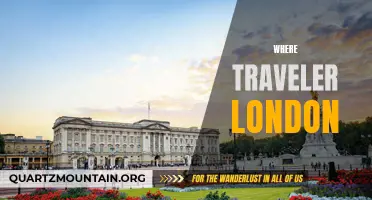
Exploring the Best Attractions in London: A Traveler's Guide
- May 10, 2024
Requirements for Americans
Etias requirements for us citizens.
From 2025 , citizens of eligible countries need to apply for the ETIAS Italy before travelling to the country. The ETIAS (European Travel Information and Authorisation System) will be introduced by the European Union for all Schengen area member countries.
The ETIAS requirements for Italy will require previously visa-exempt citizens to complete an online ETIAS Italy application prior to their trip .
Eligible travellers can obtain their ETIAS Italy by providing personal and passport details and answering a series of security questions. ETIAS will allow for improved border control within the Schengen Area.
US citizens are currently exempt from obtaining a visa to Italy . All American travellers who wish to visit Italy in the future will be required to apply for the travel authorisation and meet the ETIAS Italy requirements.
Among the ETIAS Italy requirements for US citizens , applicants must have:
- A valid passport
- A debit or credit card
- An email address
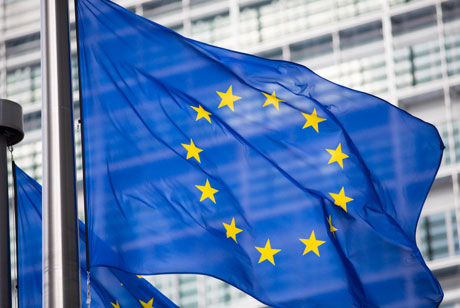
The ETIAS Italy application form will only take a few minutes to complete. Applicants simply need to meet the established requirements and fill out their application form.
Personal information for the ETIAS Italy

US citizens need to enter a few essential personal details when completing the ETIAS Italy application.
The form will require that applicants fill out the following information:
- Full name as it appears on the passport used for the application
- Date and place of birth
- Contact information, including a valid email
- Passport number and nationality
- Passport issuing date and expiration date
Travellers need to indicate the member state of first entry . When travelling to Italy, travellers should select Italy on their application.
A valid ETIAS grants its holder the possibility to travel to any Schengen country for a total stay of up to 90 days in the region within a 180-day period .
Minors will also need a valid ETIAS Italy as well as a valid passport to visit the country. Parents or guardians can complete the application on behalf of the minors. They will need to provide their personal information when completing an ETIAS application for a minor.
What documents do I need for the ETIAS Italy?
The main document needed to apply for an ETIAS Italy is a valid passport . Upon arrival in Italy, a passport should be valid for at least 3 months beyond the expected date of departure.
The passport not only needs to be valid when completing the ETIAS Italy application, but it should be valid to travel to the country . If a passport expires before ETIAS, it is necessary to renew the travel document and complete a new ETIAS application with the updated information.
It will not be possible to renew an ETIAS visa waiver once it expires.

Medical info for US citizens

United States citizens travelling to Italy do not need vaccines to enter the country, but it’s wise to be up-to-date with all recommended vaccinations from the U.S. CDCs (Centers for Disease Control and Prevention) before travelling to Italy.
US citizens travelling are advised to get medical insurance in case of an emergency during their trip. Non-Eu citizens are not covered, and health services must be paid for in accordance with the relative scale of charges.
Travellers who require prescription medication should carry it in its original packaging with their respective labels. Emergency medical services in Italy can be reached by dialing 112 to connect to an operator.
ETIAS Italy benefits for US citizens
The ETIAS travel authorisation will be implemented for several reasons, one of the most important being to improve border control . ETIAS will pre-screen travellers before they even board a plane to the EU.
The benefit of ETIAS for US citizens is that it will contribute to safer travels . ETIAS will contrast the applicant’s data against international security databases.
US citizens will be able to get their ETIAS visa waiver within minutes through the online form.

- Capital : Rome
- Language : Italian
- Time Zone : GMT+1
- Currency : €
- Country calling code : +39
- Population : 60,59 milions
Electric socket

150 S. Independence Mall West, Suite 1026, Philadelphia, PA 19106-3410
(215) 592-7329

via Vittorio Veneto 121, 00187 Roma
(+39) 06.46741
Lok Sabha Election 2024 Result
(source: abp cvoter).

A Global Affair | Travel Italy: Visa Application, How To Reach To Must Visit Places - All You Need To Know
Explore italy: if you are seeking a summer escape, italy might be your one-stop destination, offering a wide range of unique art, historical places, and breathtaking natural wonders..

“ Italy is a dream that keeps returning for the rest of your life .” - Russia’s famous poet Anna Akhmatova’s quote is enough to tell you why Italy is one of the most loved countries by tourists.
No wonder why travellers from across the globe are irresistibly drawn towards Italy as it gives a captivating experience whether you are looking for taste, art, or adventure. With a picturesque coastline taking your breath away to historical cities like Rome, Florence, and Venice, Italy offers the world’s best travelling experience that you will want to immerse yourself in its beauty. If you are also willing to live your Italian dream anytime soon, then here is your guide for all you need to know before embarking on your journey:
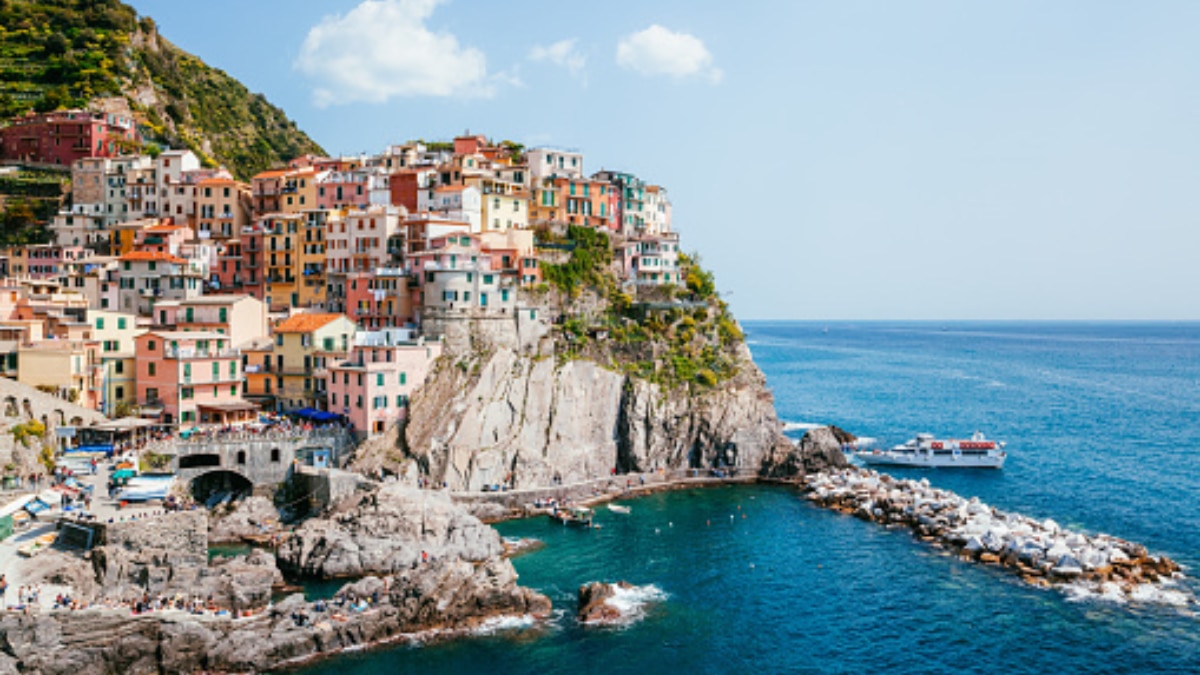
Visa Procedure:
Italy is a fascinating place that makes you fall in love with everything, and to plan your visit to this captivating destination, you have to get an entry Visa permit. Italy allocates visas to foreign nationals depending on their purposes and duration of stay. Situated in Europe, Italy comes under the Schengen countries, and foreign nationals outside the European Union willing to visit have these two visa options for different purposes. Remember that each visa category has different procedures and requirements to follow.
1- Schengen Visa (Visa C): If you are planning to visit for a maximum of 90 days or less, you have to apply for a C visa which is generally issued for purposes like tourism, business trips, transit, and family visits.
2- National Visa (Visa D): For visitors planning to stay in the nation for more than 90 days, they have to apply for visa D, which is generally issued for work, study, family reunion, medical care, and workcation.
Schengen Tourist Visa
A Schengen tourist visa is your ticket to this stunning courtyard which is valid for single entry for 30 to 90 days. As Italy does not offer Visa-on-arrival for Indians, must start planning your trip well in advance. Although it has a simple, straightforward procedure.
Conditions To Apply For A Schengen Tourist Visa For Italy:
There are certain conditions to opt for this visa:
1. When Italy is your only destination. 2. If you are travelling to other European countries as well, then Italy should be the main destination for your stay. 3. You are landing in Italy first to enter the Schengen border.
Visa Requirements For Indian Citizens:
Here are a few essential documents for an Indian national to apply for the Schengen tourist visa: 1- Entry visa application form. 2- Passport size photo. 3- Passport valid for at least three months with at least 2 blank pages. 4- Return ticket and proof of accommodation. 5- Health insurance covering a minimum of Rs. 27,15,000. 6- Financial proof to support your entire trip.
Points To Be Noted:
* Application must be submitted in person. * Do not apply earlier than three months before your trip. * Processing time is between 15 to 20 working days. * Schengen tourist visa fee for those above the age of 16 is 80 Euros, for children 6 to 12 years it’s 40 Euros, and children under 6 years have no fees to pay.
Schengen Area Benefits With Schengen Visa:
Italy is part of the Schengen Area which currently includes 26 European countries allowing easy travel without any visa or border issues. So if you are in Italy you can also visit these 26 Schengen countries: Germany, Austria, Belgium, Croatia, the Czech Republic, Denmark, Estonia, Finland, France, Greece, Hungary, Iceland, Italy, Latvia, Liechtenstein, Lithuania, Luxembourg, Malta, the Netherlands, Norway, Poland, Portugal, Slovakia, Slovenia, Spain, Sweden, and Switzerland.
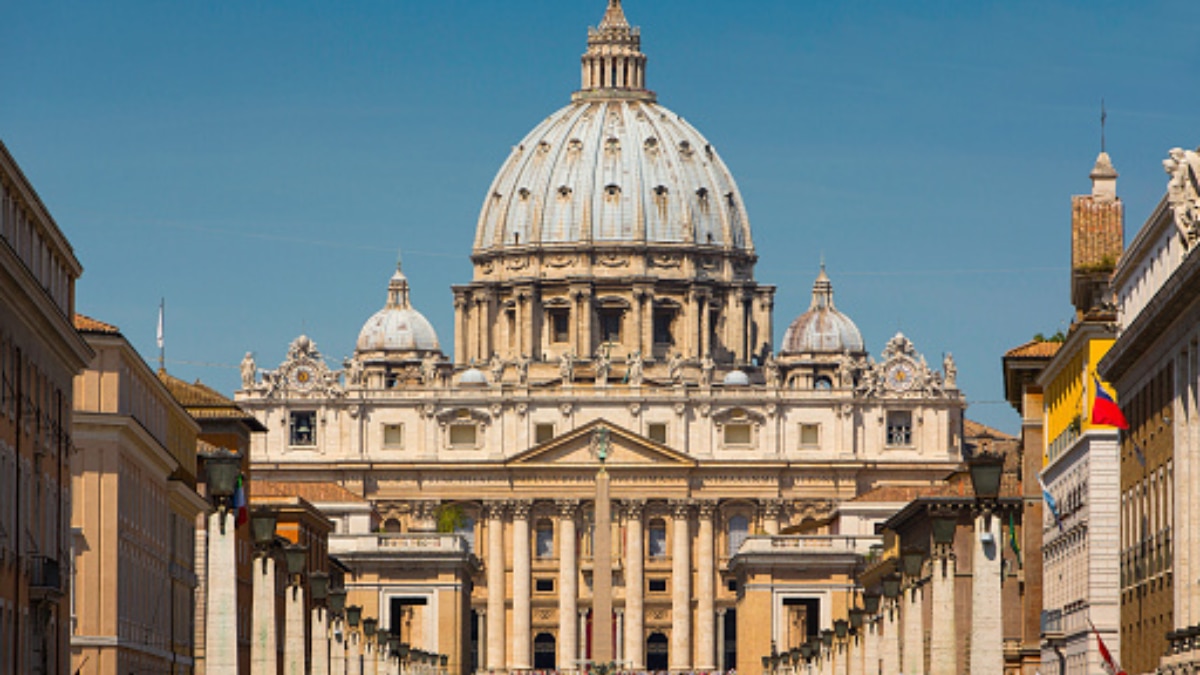
Travel Logistics:
Europe’s tenth largest country, Italy, is almost 6,500 km away from India and accessible by air, road, and sea. When choosing an airline that will be your cheapest and quickest way of travelling by the other two mediums can be a pain to your bank balance. There are several direct or connected flights from India to Italy. Pisa Galileo Galilei International Airport of Pisa, Leonardo da Vinci Fiumicino International Airport in Rome, and Malpensa International Airport in Milan are some of the busiest gateways to Italy. There are multiple airlines such as Alitalia, Turkish Airlines, Emirates, Air France, British Airways, and Air India you can opt for. Depending on the airline, you can reach Italy in 10 to 36 hours. Flight rates start from Rs. 18,000 Rs to Rs. 45,000 depending on the class and airline you choose to travel.
The sea route is one of the most beautiful ways to reach a destination and if you are looking for relaxing - luxurious travel, and have enough time, then you can opt for a cruise as well. This journey can take 15 to 20 days crossing more than 9 ports and 5 countries.
For road trip lovers, reaching Italy can also be a way that will take weeks and cost lakhs. There is no easy way to reach Italy first by road as you first have to enter France, Switzerland, and Austria. Although here you can cross the border without any hustle.
Transportation: Italy is a vast country with 100 cities and is well connected by air, train, road, and even ferry. Meridiana and Blue Express are the major domestic airlines in Italy. Train journeys in Italy are quite famous among tourists as it is the quickest, cheapest, and most beautiful way to get somewhere. You can check the train's schedule online.
With a coastline of almost 40,000 miles, ferries are quite common in Italy. And if you like road trips and driving, then car renting is also a popular and cheap way to travel.
Accommodation: For your once-in-a-lifetime experience, Italy has immense options for stays to soothe your eyes here with breathtaking views. From homestays to villas, cottages to hotels, will give you a blend of luxury and natural retreat together. You can find stay options starting from Rs. 10,000 per night to Rs 100,000 per night. If you are a budget traveller or backpacker looking for pocket-friendly options, then hostels, Airbnbs, and Couchsurfing will be your best friends. You can find stays from Rs. 1,500 to Rs 3,000 as well.
With great accommodation options, Italy will hold your breath to extend your trip but if you can’t, then already take 10 to 15 days in your schedule for Italy as you will have a lot on your plate. However, if you have other plans and want a short trip then a 7-day visit will also be as memorable as the long one.
As Italy is now a year-long destination, you may find it a bit heavy in your pocket. Depending on the season, airline, stay, and places you will explore, this trip can cost around Rs. 70-80 thousand to Rs. 1.5 lakh.
Currency : Italy uses the Euro as its official currency and as of now, one Euro is equal to approximately Rs. 90 which may change from time to time so do not forget to cross-check the currency exchange rate before embarking on your trip.
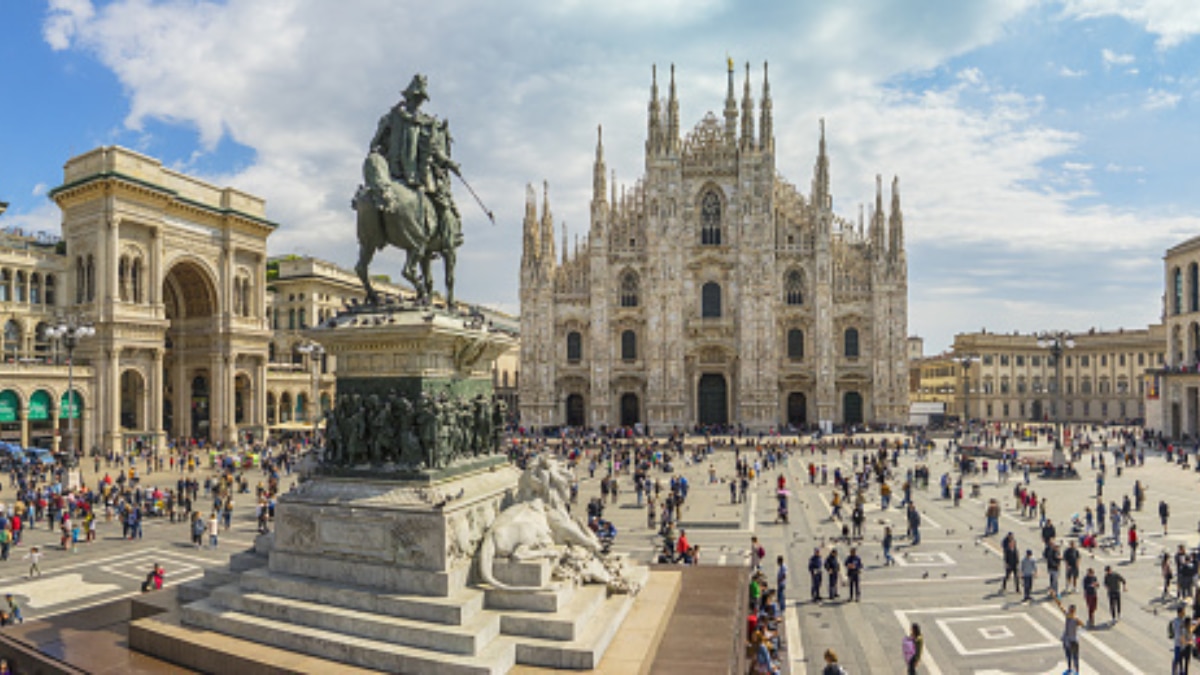
Best Time To Visit:
Italy has something for each season, that’s why you will find tourists all around the year depending on the location you are heading to. The summer season, which lasts from May to June, is the peak season for tourism although April to June (spring season) and September to October (fall season) are also quite a fair time to experience peace.
Although Italy’s official language is Italian, it has almost 10 regional and local languages. You will also find people talking in German, English, and French as well. Being a European Union nation, you will find a blend of multiple EU languages and customs here. When you can find people speaking English in major cities, you will need basic Italian phrases to survive in remote and local areas. Before embarking on your journey or maybe during the trip, you must learn a few Italian words like: Ciao (Hi), Arrivederci (Goodbye), Grazie (Thank you), Per favore (Please), and Certo (Sure).
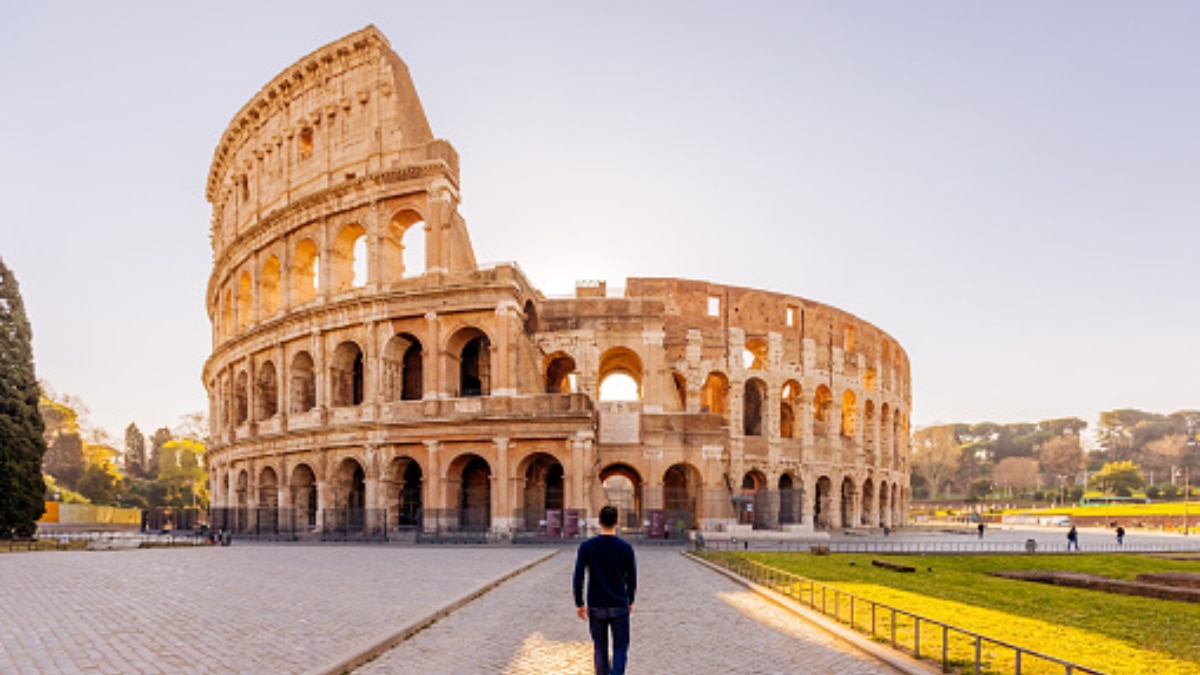
Explore The Treasure Of Italy:
Italy has a treasure box for tourists containing rich history, marvellous architecture, majestic nature, culture, taste, and love and that's why It is said that you can never be done with Italy. It has the world’s highest number of world heritage sites, eye-catching landscapes, delicious food, and tonnes of adventure to embark on.
Italy is the home to some world-famous unique cities like Venice, Rome, Milan, Florence, Naples, and Turin. When almost all the cities attract huge numbers of people, Rome is still distinct from any other city, attracting most of the tourists for its majestic grandeur. With historical bridges, authentic cuisine, and beaches, soon you will find yourself immersed in the beauty of artistic streets. Another beautiful city Florence has been romanticised in Hollywood for centuries. It is called the city of love as well. You will find art on the streets and beauty on the corners.
Some major attractions of the country telling history in themselves are The Ponte Vecchio Bridge in Florence, The UNESCO world heritage site The Colosseum also known as the Flavian Amphitheatre structure built in the Roman Empire, Leaning Tower of Pisa, St Peter's Basilica church of Vatican City, Roman Forum for monuments of the Roman empire, Trevi Fountain a baroque of the 18th century and Pantheon in Rome.
For art lovers, MAXXI is the home of everything. Opened in 2009, this museum is home to some of Italy's most exquisite and contemporary artists. Experiencing the engineering masterpiece through the Rhaetian railway which connects Italy to Switzerland through mountains will leave you in awe.
If you are looking for natural wonders after exploring architectural and art wonders, here you go. Viaggio Italiano has nature’s best version for you to rest and take a break from the city hustle. Vio Delle Cinque is for unforgettable cycling and hiking adventures and Po Delta is a paradise for bird watchers.
Italy has a perfect blend of snow-peaked mountains and crystal-clear seas with rich underwater life. if you are confused about where to head for what, then no worries:
Aosta Valley, South Tyrol, Trentino, and Piedmont are a few regions in northeastern Italy for mountain lovers. If you want snow-capped Alps views, high-altitude sports, hikes, and camping under the stars then these will be your ideal destinations.
And for beach lovers, Sicily, Apulia, Lazio, and Sardinia are for sea lovers. Situated in West Central Italy, these locations are perfect if you want to experience underwater sports, beaches with crystal clear water, and tempting sunrise and sunset views. Campania is the region for beach lovers where you will find the sea in its most dazzling way with it's appealing beaches. When you can’t choose what to explore here, you can prefer Cilento, Alburni National Park, Island of Ischia, Capri, and Amalfi Coast.
Italy is a lively nation known for its fairs and nightlife as well. To experience the fun and joy of the Italian cities you can find several fests throughout the year. Most of the fests take place in June, July, August, and September. Festa Del Redentore a Venezia, Arezzo Antiques, Sherwood, Lucca Summer Festival, and Festa Di Santa Rosalia are some of the fests you can plan if you are near the location.
Food: Another speciality of this nation which no one can refrain from is its delicious taste. Italy has some of the world’s best cuisines so do not forget to delight yourself with Italian food. Try regional dishes like Risotto Alla Milanese, Tiramisu, Pizza Margherita, Pasta Carbonara, Spaghetti, Lasagna, Truffle Risotto, and Cannoli. These dishes will give you the fun, sweet, and lip-licking taste of Italy.

Top Headlines

Trending News

Photo Gallery

Trending Opinion

Personal Corner

Qatar is welcoming 102 countries visa-free, check your visa status here .

Visit Qatar App Explore things to do in Qatar!
Select your language
Get eVisa info

Plan your trip
Visa details
Citizens of over 102 countries are eligible for a visa-free entry to the State of Qatar. Allowable lengths of stay vary, and visitors are kindly advised to check with an authorised entity for the terms and conditions that apply.
Visa requirements
Visiting Qatar made easy
Visitors from all around the world can enter Qatar either by obtaining visa on arrival, or by filling out simple online applications, depending on the passport they carry.
This webpage is designed to keep you up-to-date on the visa policies that are relevant to you, and the process you need to follow to apply for a visa, if necessary.
Visa-free entry
Nationals of eligible countries do not require any prior visa arrangements and can obtain a visa waiver upon arrival to Qatar, by presenting a valid passport with a minimum validity of three months and a confirmed onward or return ticket.
For nationals of the countries/regions listed below, the waiver will be valid for 30 days from the date of issuance and entitle its holder to spend up to 30 days in Qatar.
Andorra, Australia, Azerbaijan, Belarus, Bolivia, Bosnia and Herzegovina, Brazil, Brunei, Canada, Chile, China, Colombia, Costa Rica, Cuba, Ecuador, Falkland Islands, French Guiana, Georgia, Guyana, Hong Kong, India, Indonesia, Iran, Ireland, Japan, Kazakhstan, Lebanon, Macao, Macedonia, Maldives, Mauritius, Mexico, Moldova, Monaco, Montenegro, New Zealand, Pakistan, Panama, Paraguay, Peru, Russia, Rwanda, San Marino, Singapore, South Africa, South Korea, Suriname, Thailand, United Kingdom, United States, Uruguay, Uzbekistan Vatican city and Venezuela.
For nationals of the countries/regions listed below, the waiver will be valid for 180 days from the date of issuance and entitle its holder to spend up to 90 days in Qatar during either a single trip or on multiple trips.
Antigua and Barbuda, Argentina, Austria, Bahamas, Belgium, Bulgaria, Croatia, Cyprus, Czech Republic, Denmark, Dominican Republic, Estonia, Finland, France, Germany, Greece, Hungary, Iceland, Italy, Latvia, Liechtenstein, Lithuania, Luxembourg, Malaysia, Malta, Netherlands, Norway, Poland, Portugal, Romania, Serbia, Seychelles, Slovakia, Slovenia, Spain, Sweden, Switzerland, Turkey and Ukraine.
Qatar-Oman Joint Tourist Visa (Visa on Arrival)
This visa is issued upon arrival and is valid for 30 days for the State of Qatar and the Sultanate of Oman. It allows for multiple entry to both countries and is extendable for an additional 30 days for a fee. Citizens of the following countries are eligible for the joint visa:
Andorra, Australia, Austria, Belgium, Brunei, Canada, Cyprus, Denmark, Finland, France, Germany, Greece, Hong Kong, Hungary, Iceland, Ireland, Italy, Japan, Liechtenstein, Luxembourg, Malaysia, Monaco, Montenegro, Netherlands, New Zealand, Norway, Poland, Portugal, San Marino, Singapore, South Korea, Spain, Sweden, Switzerland, United Kingdom, United States, Vatican City
Visa on arrival – mandated hotel requirement
The Ministry of Interior Qatar currently requires nationals of the countries / regions listed below to hold registration booked through Discover Qatar website prior to travelling to Qatar.
India, Iran, Pakistan, Thailand.
Tourist visas
The Qatar tourist visa is available to nationals of all countries, except GCC citizens, but citizens of over 101 countries are eligible for a free visa on arrival (see Visa-free entry above). Travellers of select nationalities will require to pay a fee to obtain a visa on arrival or apply for a tourist visa prior to travel. Visas can be applied for on the Hayya platform for a cost of QAR 100.
Afghanistan, Åland Islands, Albania, Algeria, American Samoa, Angola, Anguilla, Antarctica, Aruba, Bangladesh, Barbados, Belarus, Belize, Benin, Bermuda, Bhutan, Bonaire, Sint Eustatius and Saba, Botswana, Bouvet Island, British Indian Ocean Territory, Burkina Faso, Burundi, Cabo Verde, Cambodia, Cameroon, Cayman Islands, Central African Republic, Chad, Christmas Island, Cocos (Keeling) Islands, Comoros, Congo, Congo (the Democratic Republic of Congo), Cook Islands, Côte d'Ivoire, Curaçao, Djibouti, Dominica, Egypt, El Salvador, Equatorial Guinea, Eritrea, Ethiopia, Falkland Islands (Malvinas), Faroe Islands (the), Fiji, French Guiana, French Polynesia, French Southern Territories, Gabon, Gambia, Ghana, Gibraltar, Greenland, Grenada, Guadeloupe, Guam, Guatemala, Guernsey, Guinea, Guinea-Bissau, Haiti, Heard Island and McDonald Islands, Holy See (the), Honduras, Iran, Iraq, Isle of Man, Jamaica, Jersey, Jordan, Kenya, Kiribati, Korea (Democratic People's Republic of Korea), Kyrgyzstan, Laos, Lesotho, Liberia, Libya, Macao, Madagascar, Malawi, Mali, Marshall Islands, Martinique, Mauritania, Mauritius, Mayotte, Micronesia (Federated States of), Mongolia, Montenegro, Montserrat, Morocco, Mozambique, Myanmar, Namibia, Nauru, Nepal, New Caledonia, Nicaragua, Niger, Nigeria, Niue, Norfolk Island, Northern Mariana Islands, Palau, Palestine, Papua New Guinea, Philippines, Pitcairn, Puerto Rico, Réunion, Saint Barthélemy, Saint Helena, Ascension and Tristan da Cunha, Saint Kitts and Nevis, Saint Lucia, Saint Martin (French part), Saint Pierre and Miquelon, Saint Vincent and the Grenadines, Samoa, Sao Tome and Principe, Senegal, Sierra Leone, Sint Maarten (Dutch part), Solomon Islands, Somalia, South Georgia and the South Sandwich Islands, South Sudan, Sri Lanka, Sudan, Svalbard and Jan Mayen, Swaziland, Syrian Arab Republic, Taiwan (Province of China), Tajikistan, Tanzania, United Republic of Tanzania, Timor-Leste, Togo, Tokelau, Tonga, Trinidad and Tobago, Tunisia, Turkmenistan, Turks and Caicos Islands, Tuvalu, Uganda, United States Minor Outlying Islands, Vanuatu, Vietnam, Virgin Islands (British), Virgin Islands (U.S.), Wallis and Futuna, Western Sahara, Yemen, Zambia and Zimbabwe.
Applying for a visa using the Hayya platform
Thanks to a host of visa facilitation measures, Qatar is now the most open country in the Middle East. Visitors from all around the world can now enter Qatar either by obtaining visa on arrival, or by filling out simple online applications, depending on the passport they carry.
This webpage is designed to keep you up-to-date on the visa policies that are relevant to you, and the process you need to follow to apply for a visa, if necessary.
Hayya card validity extended until 2024
Are you a Hayya Card holder living outside the State of Qatar? We’ve got news!
The validity of the Hayya Card has been extended and will now allow Hayya Card holders to enter the State of Qatar until February, 2024.
Travel requirements:
- Proof of a confirmed hotel reservation or accommodation with family or friends approved through the Hayya portal
- Passport valid for no less than three months upon arrival in the State of Qatar
- Valid health insurance during the period of stay in the country. We recommend all travellers visiting the State of Qatar to have a valid health insurance policy covering Qatar's medical facilities. Those who don’t already have an insurance policy are welcome to purchase one on arrival in the State of Qatar. For more information on travel insurance, click here .
- Return tickets
All Hayya card holders visiting Qatar will have access to the following:
- The 'Hayya with Me' feature' allowing Hayya Card holders to invite up to three family members or friends
- A multiple-entry permit
- No fees will apply
Qatar Transit Visa
Qatar Airways passengers transiting in Hamad International Airport for a minimum of 5 hours are eligible to apply for the Qatar Transit Visa. It is free of charge, valid for up to 96 hours (four days) and open to passengers of all nationalities**.
For more information about Qatar Transit tours, please click here .
Visa Exemptions
Nationals of the Gulf Cooperation Council countries (Bahrain, Kuwait, Oman, Saudi Arabia and United Arab Emirates) do not require a visa to enter Qatar.
Mandatory health insurance
We recommend all travellers visiting the State of Qatar to have a valid health insurance policy covering Qatar's medical facilities. Those who don’t already have an insurance policy are welcome to purchase one on arrival in the State of Qatar. For more information on travel insurance, click here .
* Service fees only apply. ** All visas are approved and issued at the sole discretion of Qatar's Ministry of Interior.
Disclaimer: All visa rules and policies for international visitors are subject to change without notice and are approved and issued at the sole discretion of Qatar's Ministry of Interior.

Get expert help to book a dream Qatar trip
Need some help planning your next Qatar holiday or business trip? With Qatar Concierge, our dedicated travel team is here to help you book flights, plus guide you on the best hotels, restaurants, attractions and more. Call 0161 527 4409 and they’ll be happy to help. Please note that this service is not for visa queries, please visit our Visa page for more information.
Things to know before travelling
Want to travel visa-free? Check if you qualify here.
Getting here
Planning your trip to Qatar? Check how to get here.
Travel tips
Make the most of your visit with our handy travel guide.
Getting around
From a dhow boat to our world-class metro, here’s how to easily explore Qatar.
- Latest edition
- Media Centre
- Terms & conditions
- Privacy notice
- Corporate website
- Amiri Diwan
- Cookie policy
- Qatar Tourism brand logos
- Subscribe to our newsletter
- Cookie settings
© 2024 Qatar Tourism | All rights reserved

- Sustainability
- Small Business
- Mastercard Crypto Credential goes live with first peer-to-peer pilot transactions, adds new partners to the ecosystem
What we’re saying:
- For the first time, crypto exchange users will be able to send and receive crypto using their Mastercard Crypto Credential aliases, instead of the typically long and complex blockchain addresses.
- The live transaction capabilities are enabled on the Bit2Me, Lirium and Mercado Bitcoin exchanges, allowing them to enable blockchain transactions simply and securely between Latin American and European corridors.
- Users in Argentina, Brazil, Chile, France, Guatemala, Mexico, Panama, Paraguay, Peru, Portugal, Spain, Switzerland and Uruguay will be able to send cross-border and domestic transfers across multiple currencies and blockchains.
- Building on this momentum, Foxbit is the latest crypto wallet provider to join the Mastercard Crypto Credential pilot ecosystem, extending the reach to more consumers. Lulubit users will also receive access through its integration with Lirium.
What it means:
- Mastercard Crypto Credential helps verify interactions among consumers and businesses using blockchain networks. It provides the assurance that the user has met a set of verification standards and confirms that the recipient’s wallet supports the transferred asset.
- Through the exchange of metadata, Mastercard Crypto Credential eliminates the complexity of a consumer knowing which assets or chains are supported by the person they are looking to send funds to, bringing more trust and certainty to these transactions.
- Mastercard Crypto Credential supports the exchange of Travel Rule information for cross-border transactions. The Travel Rule is a regulatory requirement to ensure transparency and prevent potentially illegal and illicit activities.
- The P2P transaction is the first of many possible use cases that Mastercard Crypto Credential aims to support. Others may extend to NFTs, ticketing, and other payments solutions depending on market and compliance requirements.
How it works:
- The exchange will first verify a user under the set of Mastercard Crypto Credential standards. At that point, the user obtains an alias to send and receive funds across all supported exchanges.
- When a user initiates a transfer, Mastercard Crypto Credential verifies that the recipient’s alias is valid, and that the recipient’s wallet supports the digital asset and associated blockchain.
- If the receiving wallet does not support the asset or blockchain, the sender is notified and the transaction does not proceed, protecting all parties from the potential loss of funds.
Why it matters:
- This milestone marks the first real-world application of the Mastercard Crypto Credential vision, which was unveiled at Consensus in 2023.
- The live Mastercard Crypto Credential P2P transactions represent the potential to further expand and support the domestic and cross-border remittance market.
Hear from the experts:
- “Mastercard continues to invest in its technology, standards and partnerships to bring safe, simple and secure payments to the forefront,” said Walter Pimenta, executive vice president, Product and Engineering, Latin America and the Caribbean at Mastercard. “As interest in blockchain and digital assets continues to surge in Latin America and around the world, it is essential to keep delivering trusted and verifiable interactions across public blockchain networks. We’re thrilled to work with this dynamic set of partners to bring Mastercard Crypto Credential closer to realizing its full potential.”
- “We are proud to continue deepening our alliance with Mastercard, with whom we share a commitment to innovation and the development of solutions that drive payment alternatives through the use of crypto assets,” said Leif Ferreira, CEO and co-founder of Bit2Me.
- "For the Foxbit Group, working with a leader like Mastercard reinforces our commitment to adapting to market needs and offering solutions that not only accompany, but also enrich our users' experience in the dynamic world of cryptocurrencies,” said Ricardo Dantas, chief executive officer of Foxbit Group. “This is an important step in strengthening our presence in the cryptocurrency market. Our collective work, which includes joining the Mastercard Crypto Credential ecosystem as well as launching the Foxbit Card, aligns perfectly with our mission to expand the usability and accessibility of cryptocurrencies, offering our customers more ways to manage and make the most of their digital finances.”
- “At Lirium, we are focused on providing regulated crypto services in Latin America and the rest of the world,” said Martin Kopacz, chief operating officer of Lirium. “With Mastercard Crypto Credential, we can ensure the traceability of all blockchain transactions with a higher level of compliance, while also providing an exceptional user experience.”
- "Mercado Bitcoin is proud to partner with Mastercard on its groundbreaking Crypto Credential pilot. As a Latin American leader in innovative blockchain solutions, such as real-world assets and the Brazilian CBDC, we believe in Mastercard's initiative and its potential to pave the way for a faster future of global financial transactions," said Roberto Dagnoni, chief executive officer of 2TM, owner of Mercado Bitcoin.
What happens next?
- A select group of crypto wallet users will leverage Mastercard Crypto Credential on a first-come, first-serve basis. Wider availability will roll out to more than 7 million users across the participating exchanges over the coming months.
- To learn more about Mastercard Crypto Credential, please contact [email protected] .
Media Contacts
About Mastercard (NYSE: MA)
Mastercard is a global technology company in the payments industry. Our mission is to connect and power an inclusive, digital economy that benefits everyone, everywhere by making transactions safe, simple, smart and accessible. Using secure data and networks, partnerships and passion, our innovations and solutions help individuals, financial institutions, governments and businesses realize their greatest potential. With connections across more than 210 countries and territories, we are building a sustainable world that unlocks priceless possibilities for all.
www.mastercard.com
- Investor Relations
Mastercard Sites
- Mastercard.com
- Mastercard Brand Center
- Mastercard Data & Services
- Priceless.com

COMMENTS
Call us in Washington, D.C. at 1-888-407-4747 (toll-free in the United States and Canada) or 1-202-501-4444 (from all other countries) from 8:00 a.m. to 8:00 p.m., Eastern Standard Time, Monday through Friday (except U.S. federal holidays). See the State Department's travel website for the Worldwide Caution and Travel Advisories.
What documents are required for EU and non-EU citizens to enter and travel in Italy? The documentation required to enter Italy varies according to your country of origin:. for EU citizens and citizens of countries that have signed the Schengen Agreement, a valid identity card is sufficient as an alternative to a passport;; Citizens from non-EU countries may enter Italy with a passport valid ...
Find continuously updated travel restrictions for Italy such as border, vaccination, COVID-19 testing, and quarantine requirements.
A guided procedure will help you decide if you need to apply for a visa based on your nationality, country of residence, reasons for your visit and length of stay. If you need a visa for Italy, you will be provided with all the information and forms needed to submit your application. Submission of the required documentation does not ...
When you submit the application for a tourist visa for Italy, you must have several supporting documents. One of them is the Italy Visa Application Form. The requirements for an Italy Tourist Visa are: Complete Travel itinerary. You must include a document detailing the dates of your travel (entry and exit) as well as flight numbers.
To make things a little simpler, here's our guide to visa requirements for Italy, with everything you need to know about the different visa types available and the rules around them. Visa-free travel to Italy Italy is part of the Schengen area - a bloc of 27 European countries that comprise the largest border-free area on the planet.
However, there are still a standard set of documents everyone has to have. The requirements for an Italy visa are as follows: Italian visa application form. Valid passport/travel document. Pictures. Civil status documents. Copies of previous visas. Travel insurance.
To travel to Italy, you must follow Schengen area passport requirements . To enter Italy (and all Schengen countries) your passport must: have a 'date of issue' less than 10 years before the ...
Many countries, including the US, require passengers to present a negative COVID-19 test result before boarding their flight home from an international trip. Fortunately, tests are widely available across Italy in pharmacies, labs and testing centers. Antigen tests cost approximately €20, while PCR tests are generally around €65.
EXCEPTIONS TO THE SWAB TESTING AND SELF-ISOLATION REQUIREMENTS Provided that the persons travelling to Italy do not show any COVID-19 symptoms, and subject - in any ... Covid-free tourist corridors are considered to be all routes departing from and arriving in Italy for tourist travel to Aruba, Maldives, Mauritius, Seychelles, Dominican ...
Visa for entry and stay in Italy. At the end of a gradual process of adaptation to the common visa policy laid down in the Convention Implementing the Schengen Agreement, Italy entered the Schengen system on October 26, 1997. The strengthening of the common external border was therefore followed by the parallel and gradual abolition of internal ...
A foreigner already living in a Schengen State and holding a stay permit is exempt from the visa requirement for stays not exceeding 90 days in a 180-day period, provided that entry into Italy is not for the purpose of employment, self-employment or study/internship-training.
Latest FCDO travel advice for Italy including on entry requirements, safety and security and local laws and customs.
In this comprehensive guide, we will delve into the Italy travel requirements, including visa considerations, COVID-19 protocols, transportation guidelines, and more. Entry Requirements for Travelers to Italy Visa Requirements. Italy welcomes visitors from various countries, and the visa requirements differ based on your nationality.
Photo credit: Natalie. June 2023 - Natalie Deduck of Best of Turin, visitor: "My husband and I come to Turin to stay a month and later travel to other destinations in Italy.. The main tourist destinations such as Rome, Amalfi Coast, Florence, and Milan are receiving a tremendous influx of tourists this Spring and Summer.
The Italy Transit Visa is granted to foreign nationals who have to stop in an Italian airport or seaport in order to change travel vessels before continuing their onward journey to a non-Schengen country. For a complete list of Italy Transit Visa requirements visit the article. Italy Visas for San Marino and Vatican City
Here is the step-by-step guide on how to apply for an Italy Schengen visa: Check if you need a visa. Understand the type of visa you need. Determine where to lodge your application. Complete and download the visa application form. Schedule your visa appointment. Prepare the required documents.
Entry requirements to Italy in 2024. To enter Italy, visitors must: Have a minimum of 3 months validity on your passport. Have a current and valid visa if required (no visa or visa waiver is currently required for citizens of the United States, United Kingdom, Australia, or European Union)
Australian citizens planning on staying in Italy or any other EU member country for less than 90 days are not required a visa. Your passport has to have at least six-month validity from your planned date of return. New Zealanders do not require a visa to enter Italy and can spend up to three months in the country.
Schengen visa. Italy Schengen visa usually has short stay with a period of 90 days and visa expires in 90 days. Applicant is required to be present when applying for visa.You must submit a passport or other travel document issued within the last 10 years. This must have at least 2 blank pages and be valid for at least another 3 months after the ...
Passport Health - Travel Vaccines for Italy. Overall rating: 5 stars - 4 reviews. ★★★★★. "Thorough, detailed explanation". "The nurse gave me a thorough, detailed explanation of the health issues I will face on my trip to Italy. It was a lot to take in, but she was patient, and fortunately I had done some research ...
U.S. Citizens with emergencies, please call 06-46741. Outside of Office Hours, contact: 06-46741. Outside of Italy: 011-39-06-46741. Emergency Contacts - All Locations. International Parental Child Abduction. Arrest of a U.S. Citizen. Death of a U.S. Citizen. Victims of Crime. Emergency Financial Assistance.
Entry Requirements for Traveling to Italy. Italy is a beautiful country that attracts millions of tourists every year. If you are planning to travel to Italy, it is important to be aware of the entry requirements before you go. Here is a detailed guide on what you need to know to ensure a smooth and hassle-free trip.
From 2025, citizens of eligible countries need to apply for the ETIAS Italy before travelling to the country.The ETIAS (European Travel Information and Authorisation System) will be introduced by the European Union for all Schengen area member countries.. The ETIAS requirements for Italy will require previously visa-exempt citizens to complete an online ETIAS Italy application prior to their trip.
Remember that each visa category has different procedures and requirements to follow. 1- Schengen Visa (Visa C): If you are planning to visit for a maximum of 90 days or less, you have to apply for a C visa which is generally issued for purposes like tourism, business trips, transit, and family visits.
Visa details. Citizens of over 102 countries are eligible for a visa-free entry to the State of Qatar. Allowable lengths of stay vary, and visitors are kindly advised to check with an authorised entity for the terms and conditions that apply. Check your visa eligibility.
The Travel Rule is a regulatory requirement to ensure transparency and prevent potentially illegal and illicit activities. The P2P transaction is the first of many possible use cases that Mastercard Crypto Credential aims to support. Others may extend to NFTs, ticketing, and other payments solutions depending on market and compliance requirements.